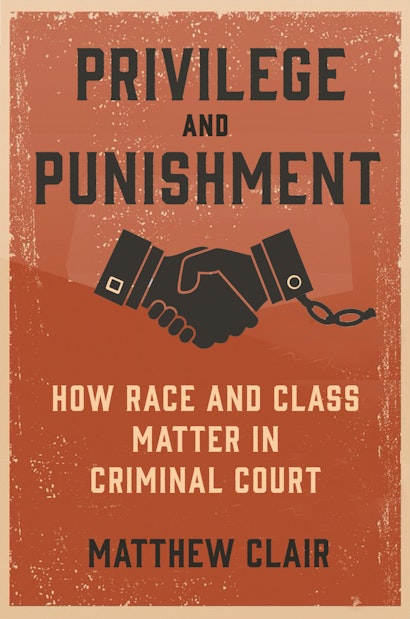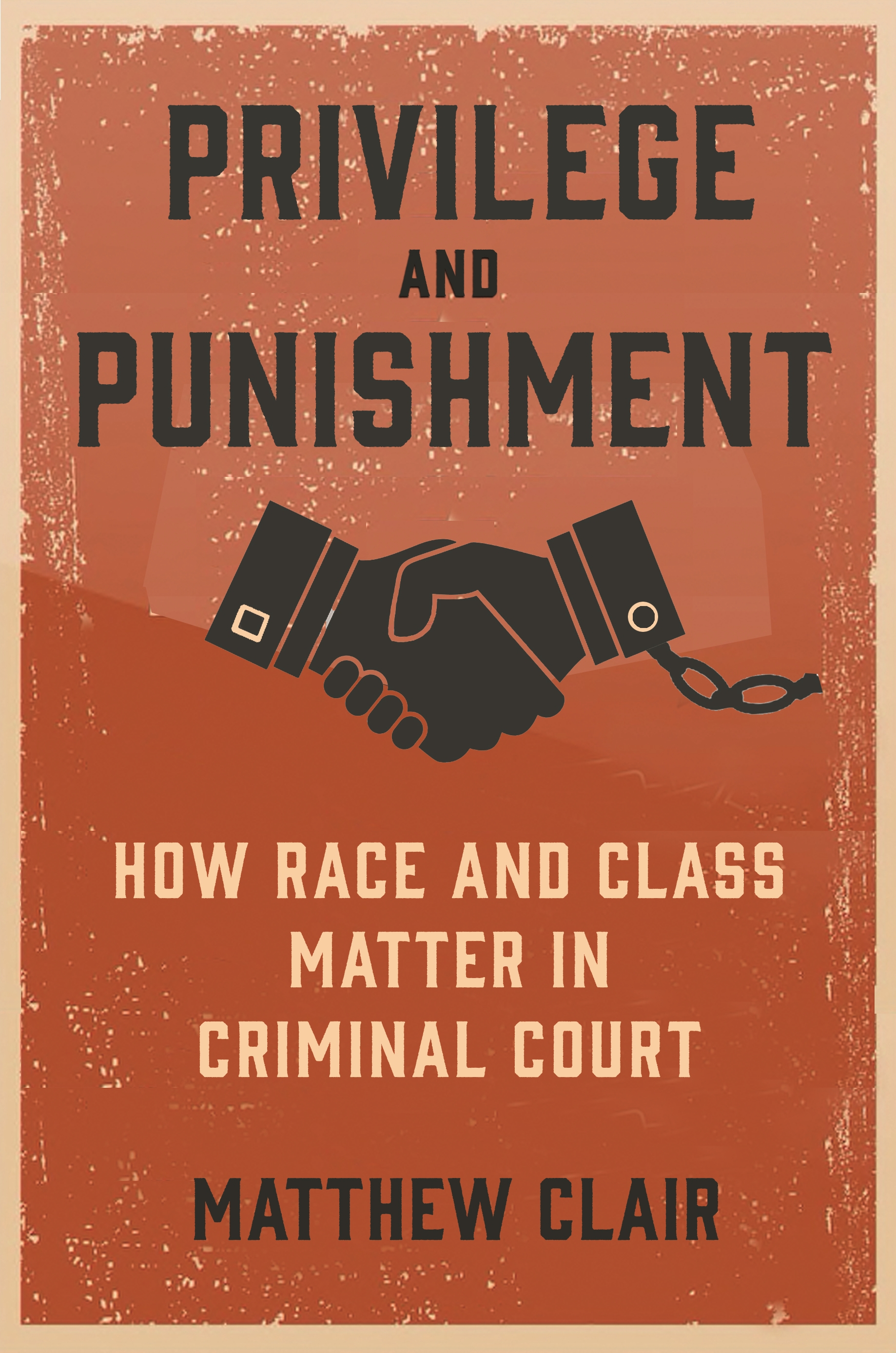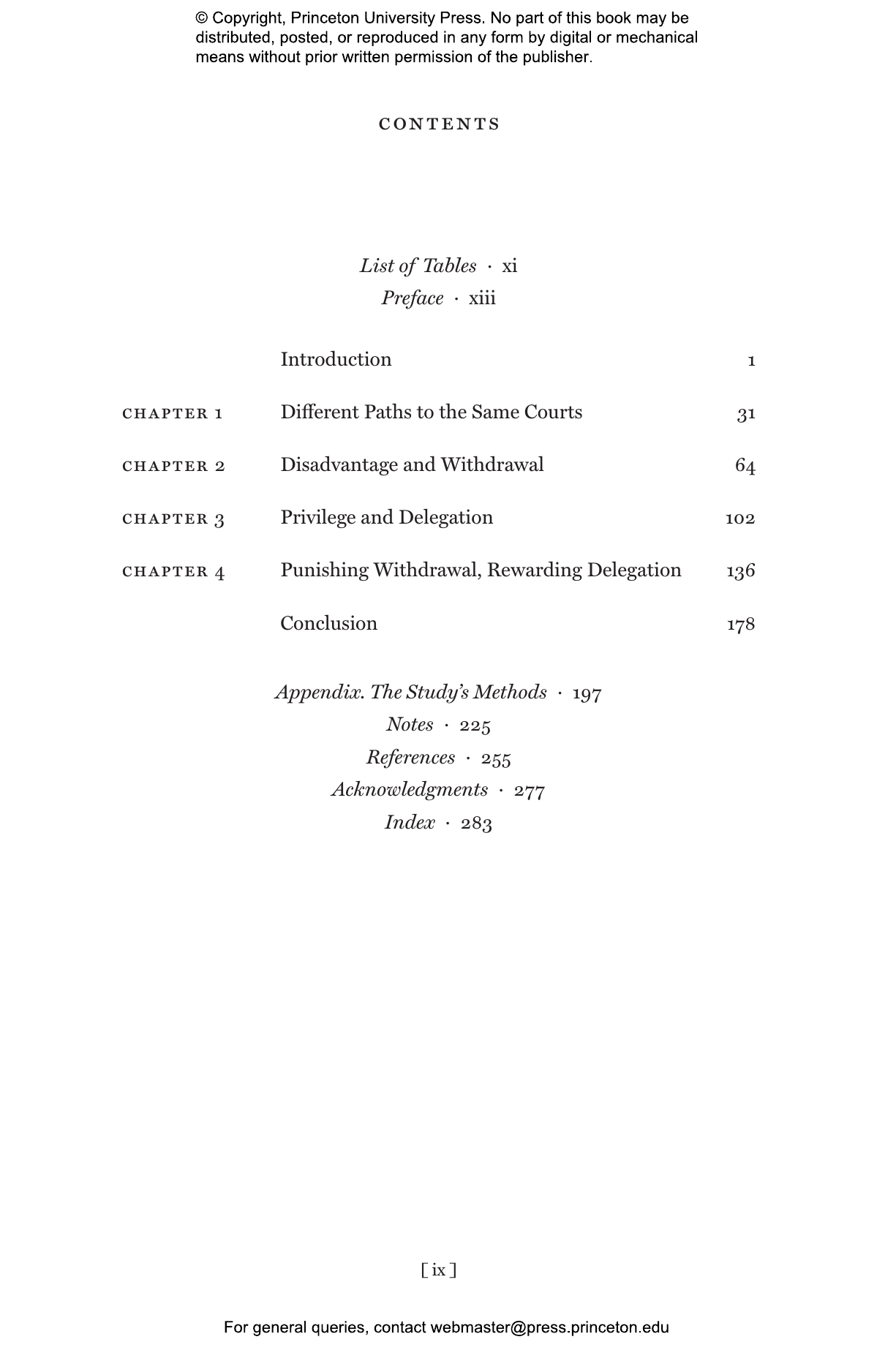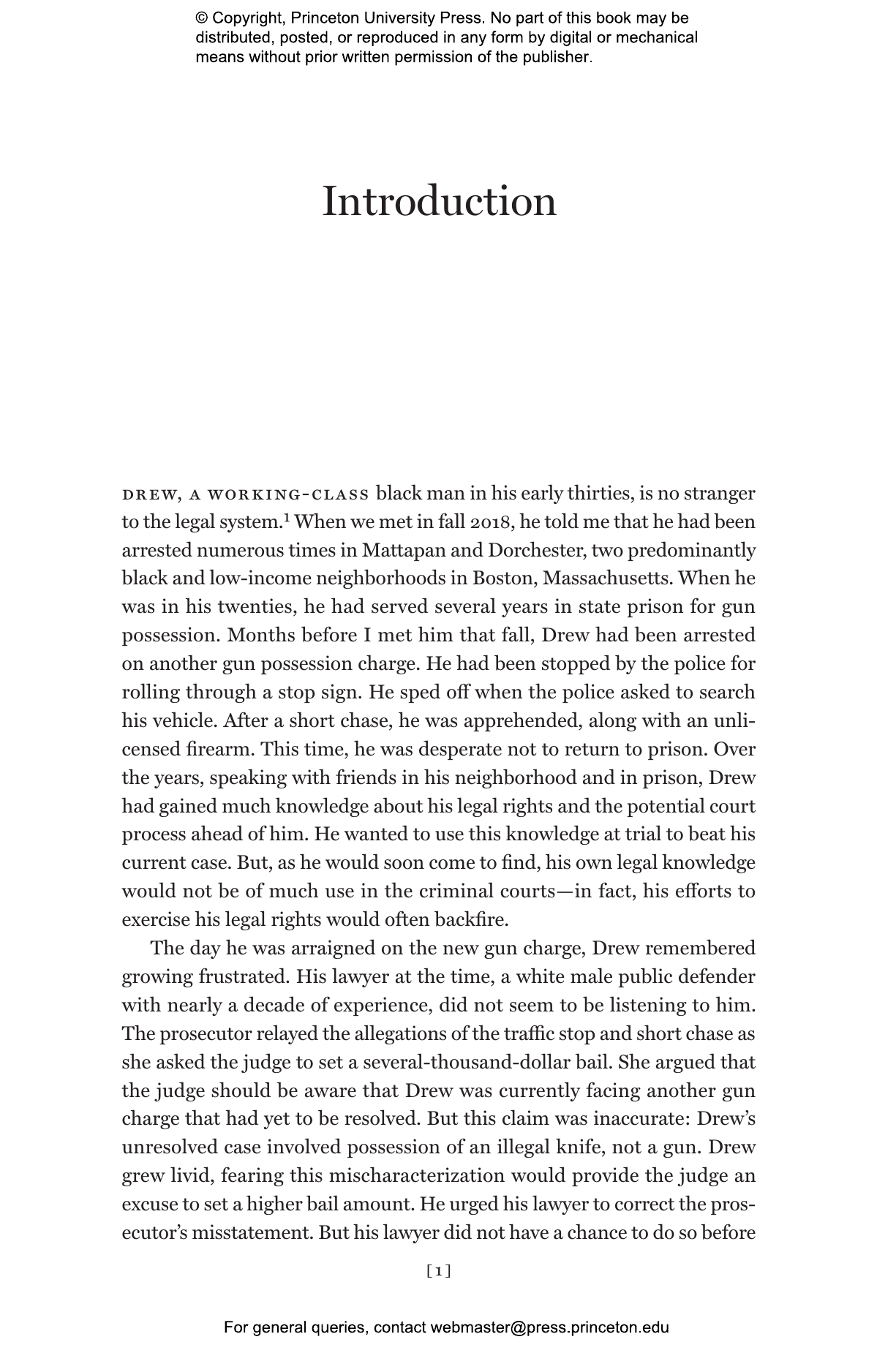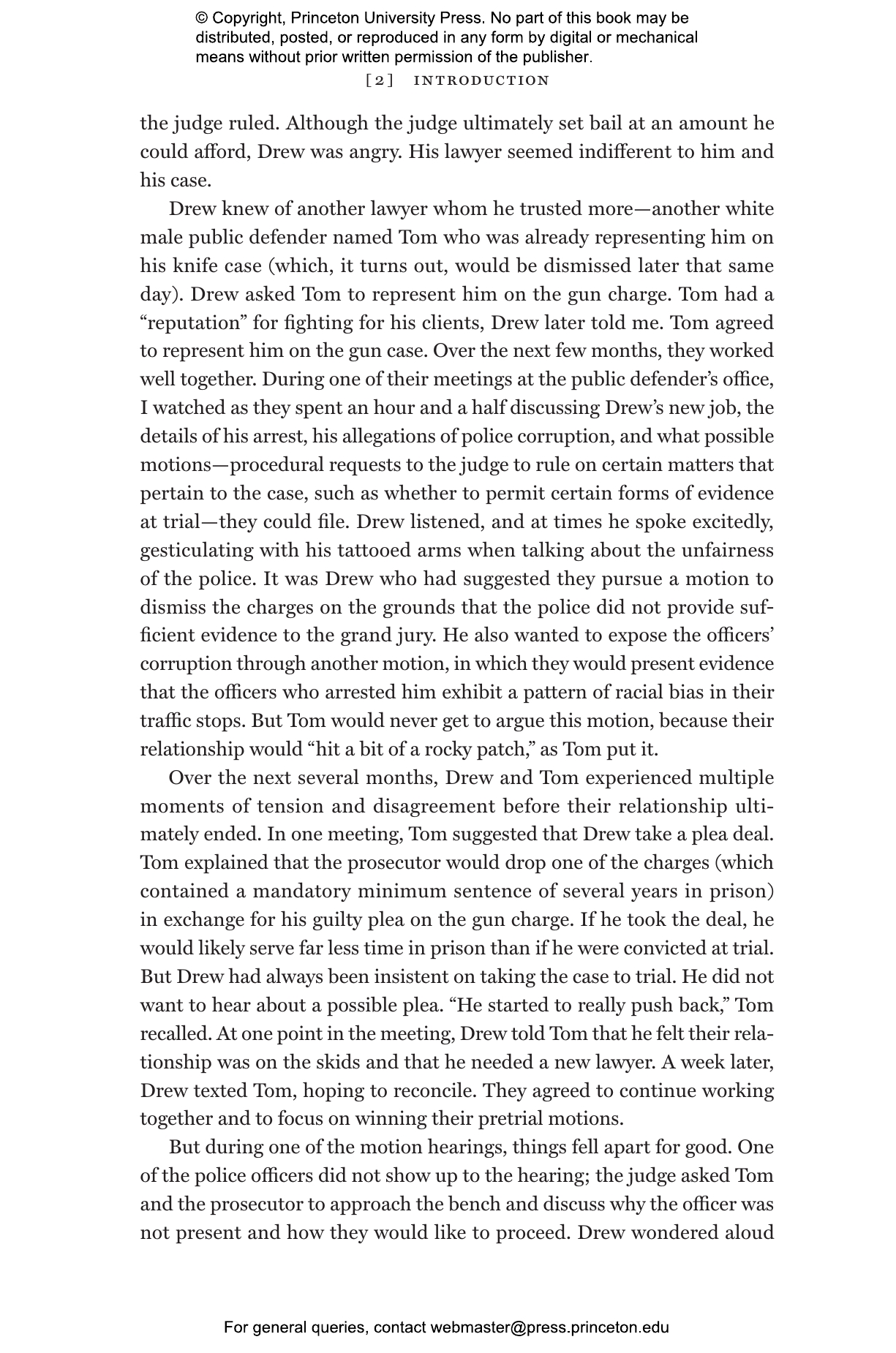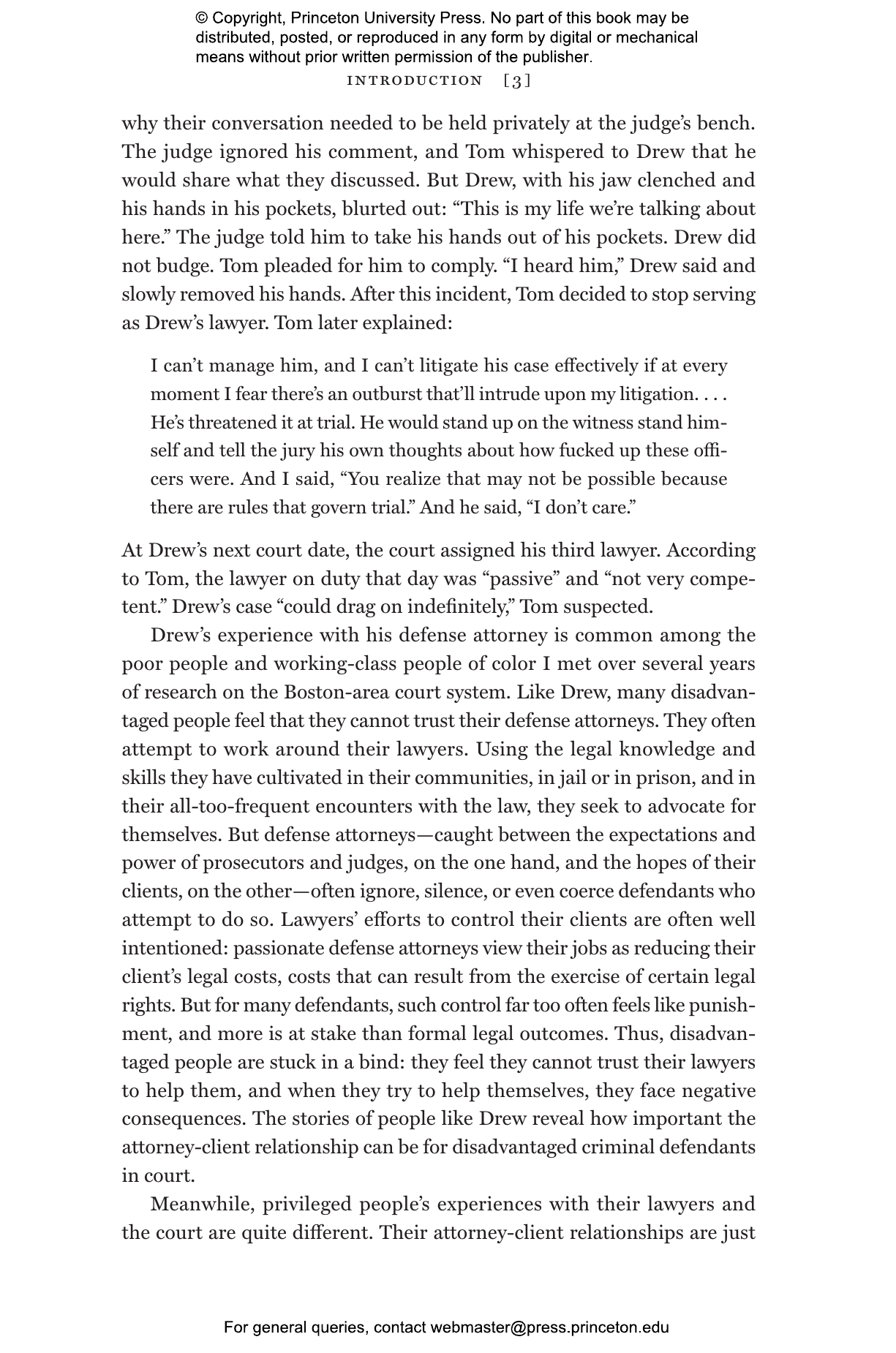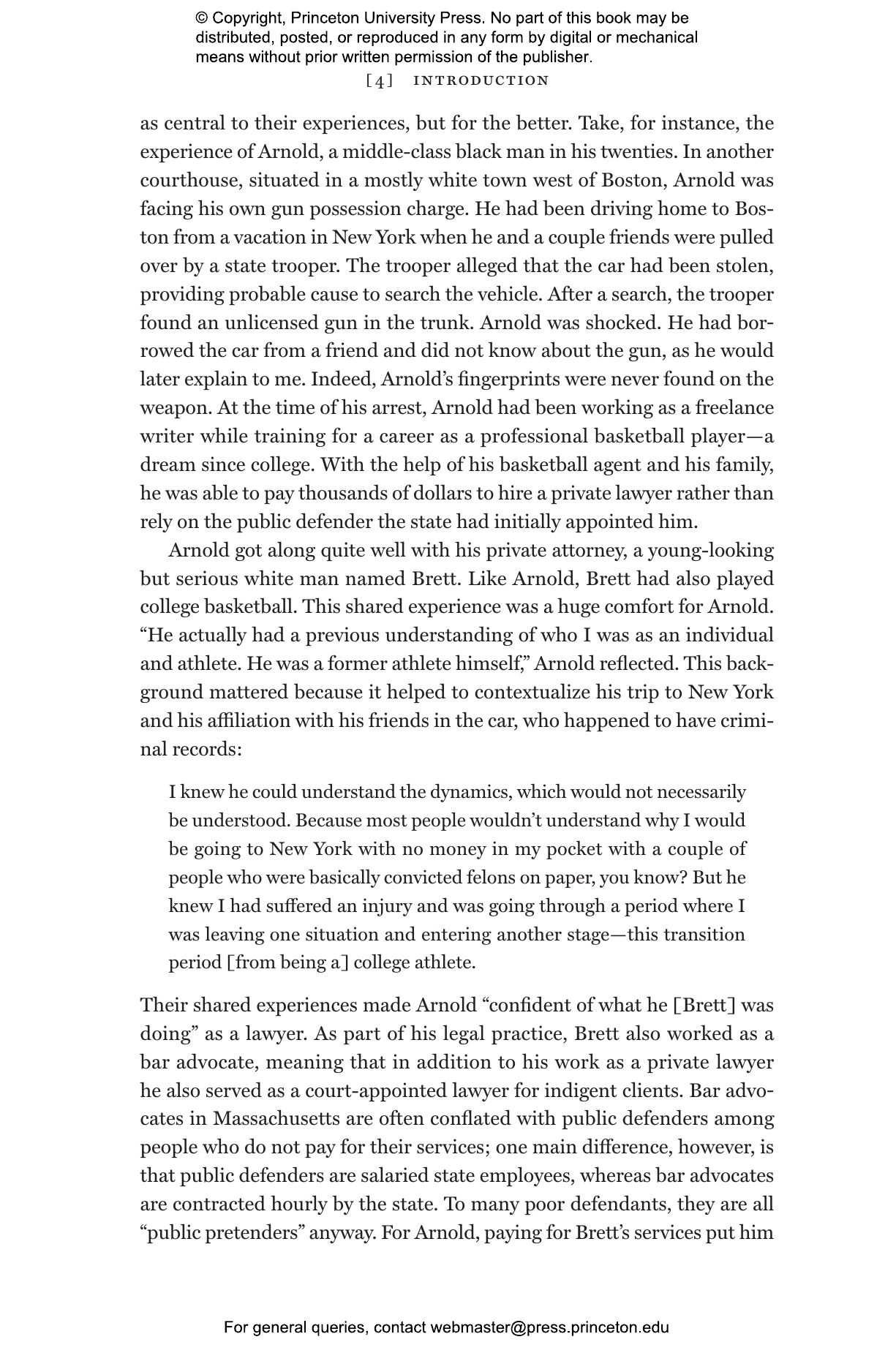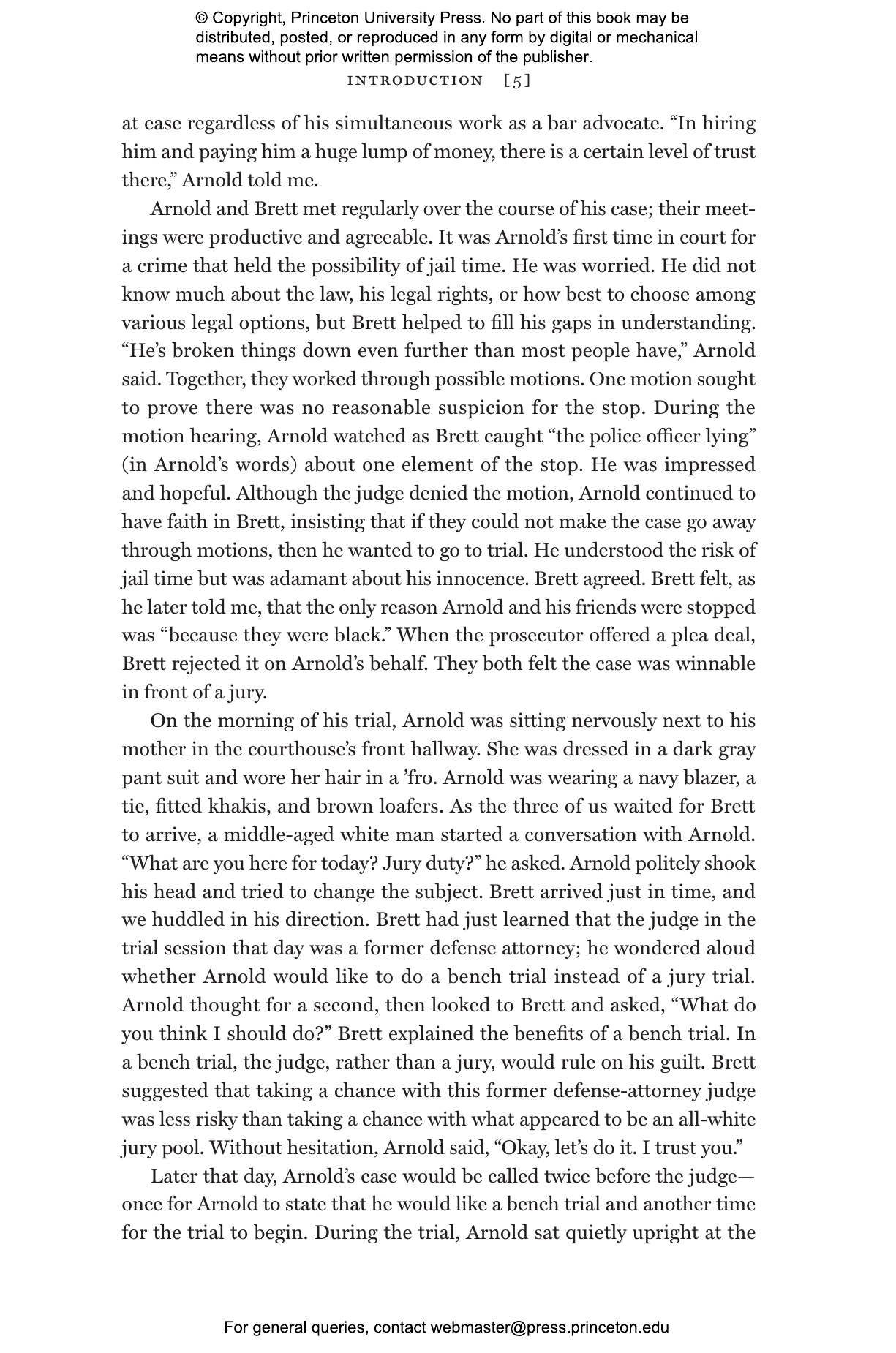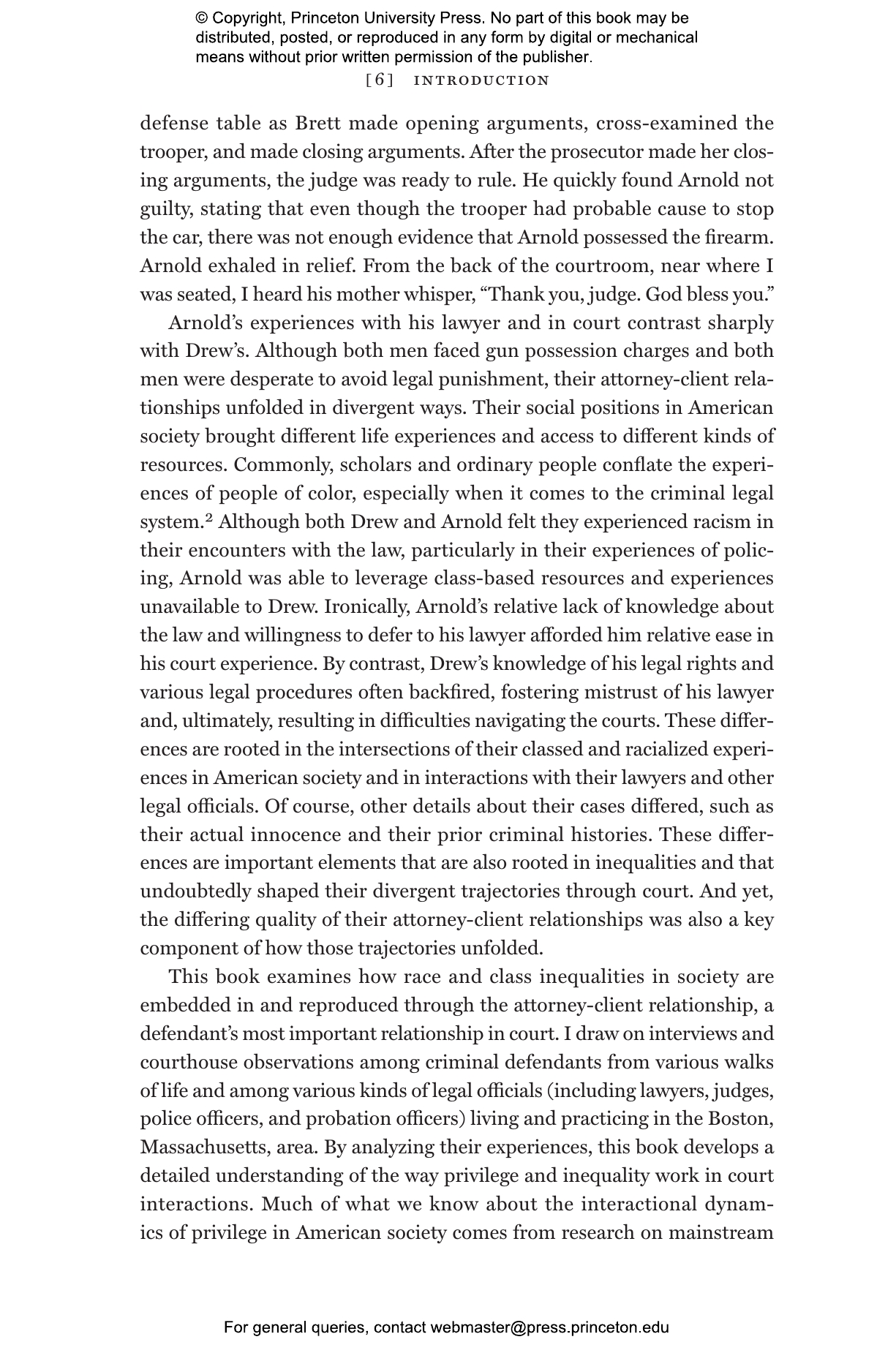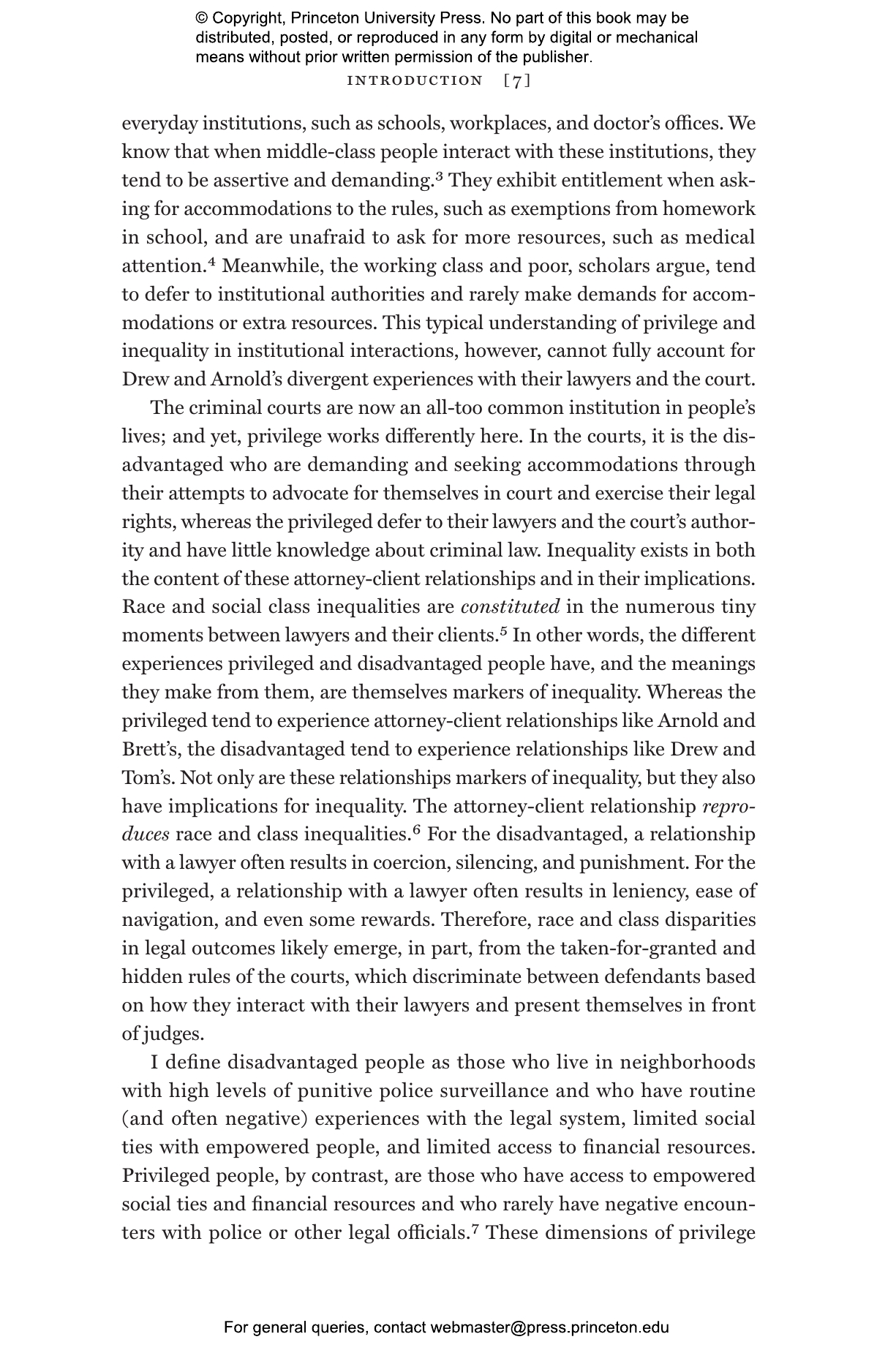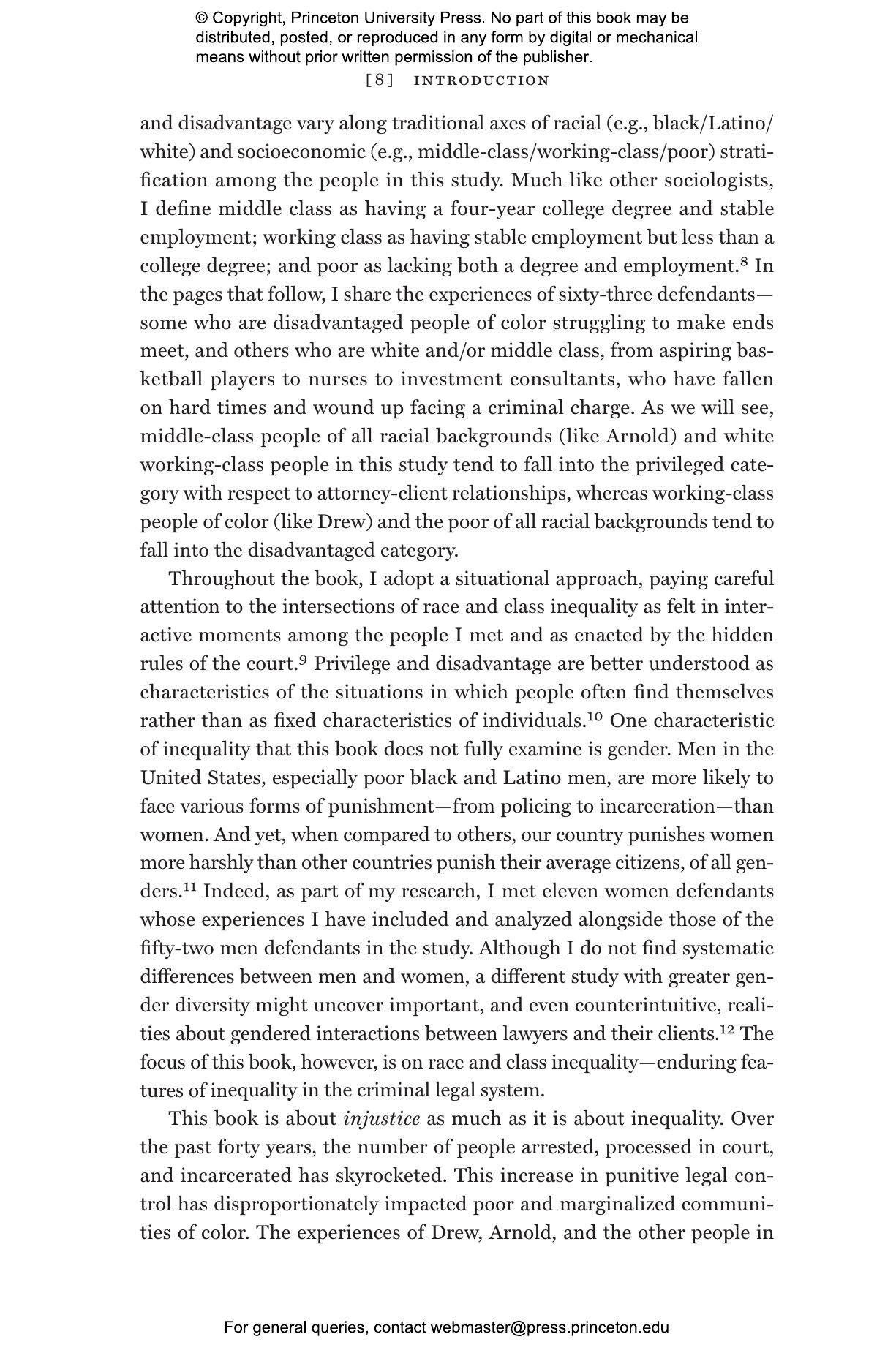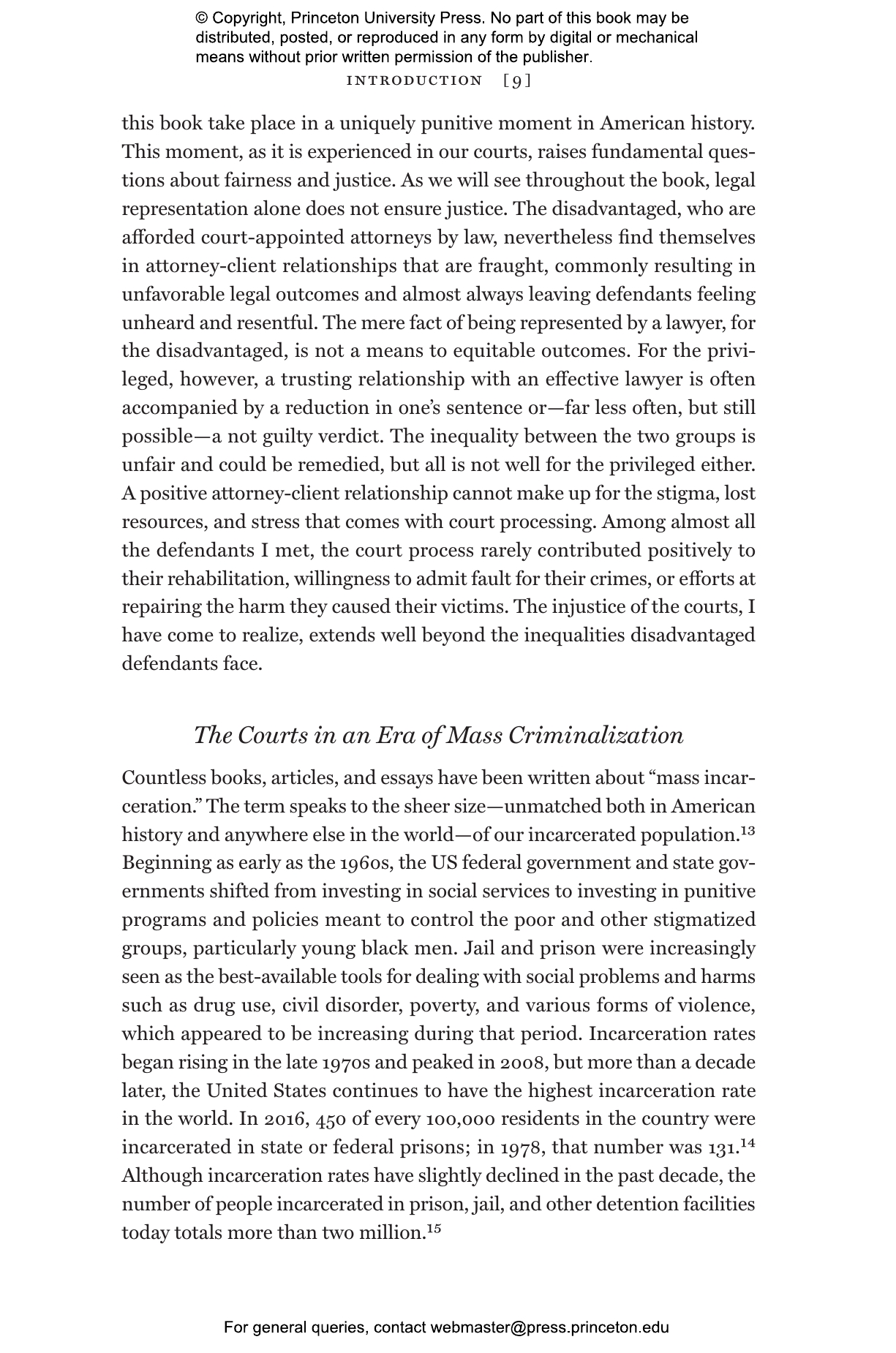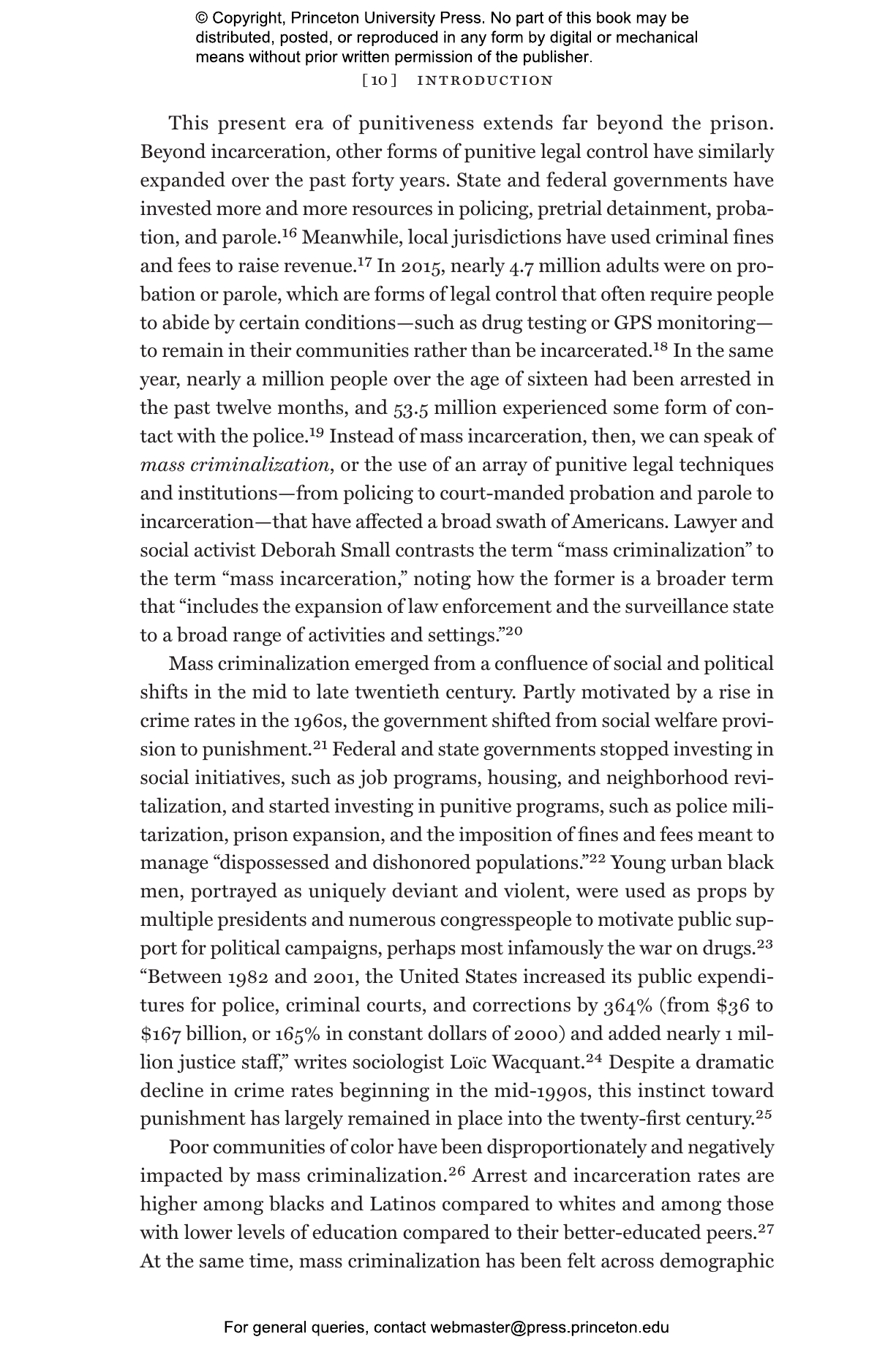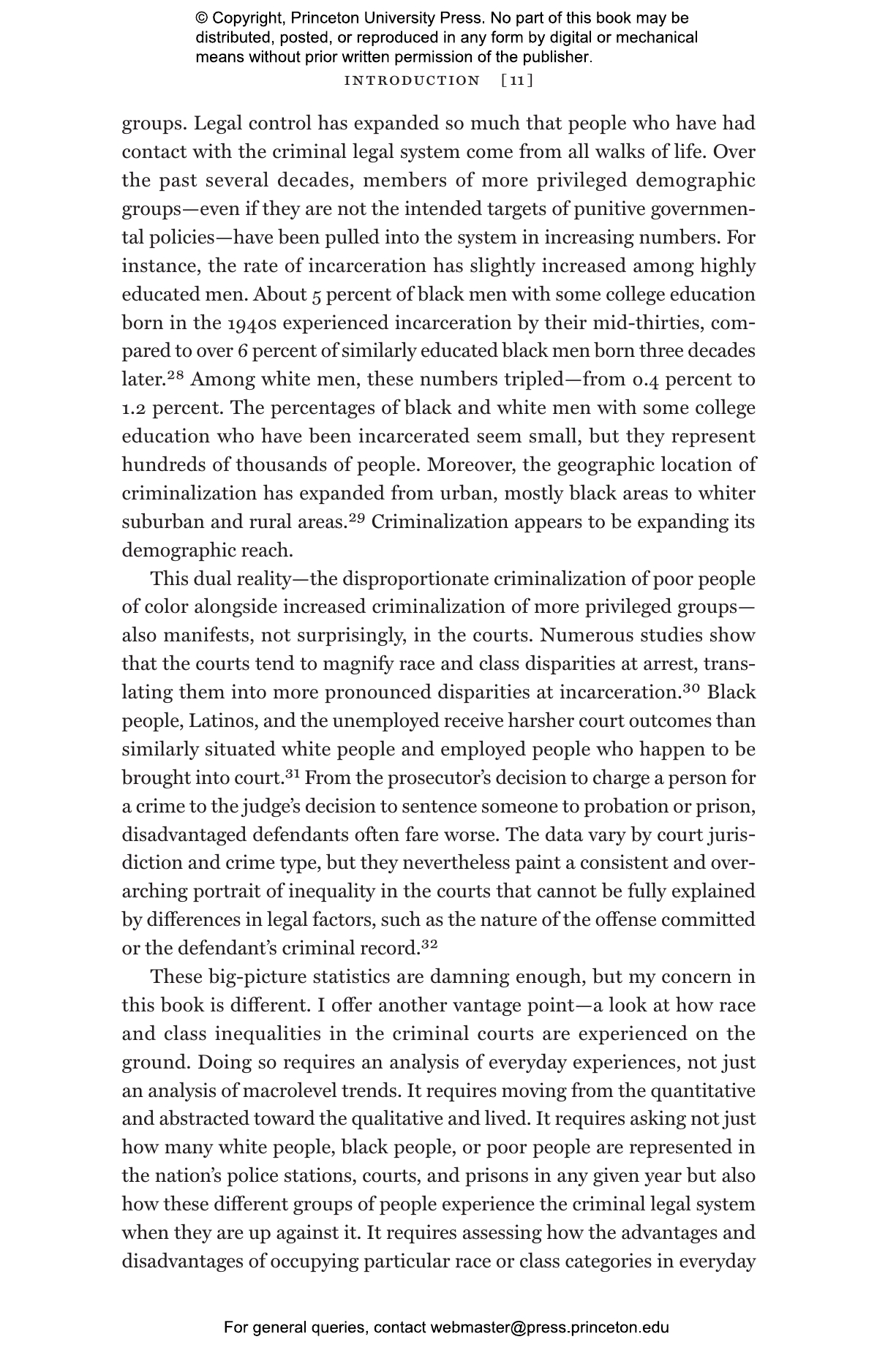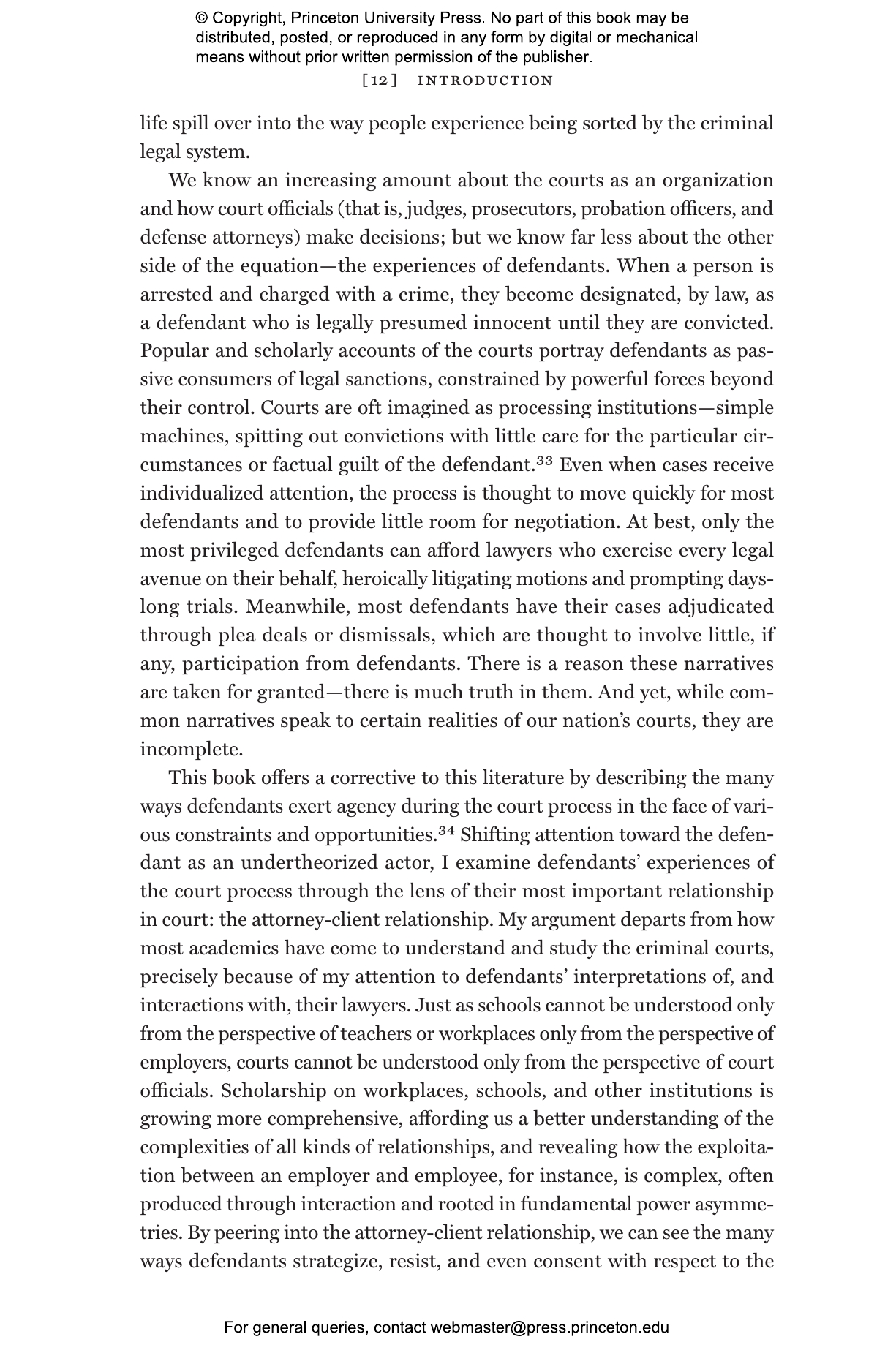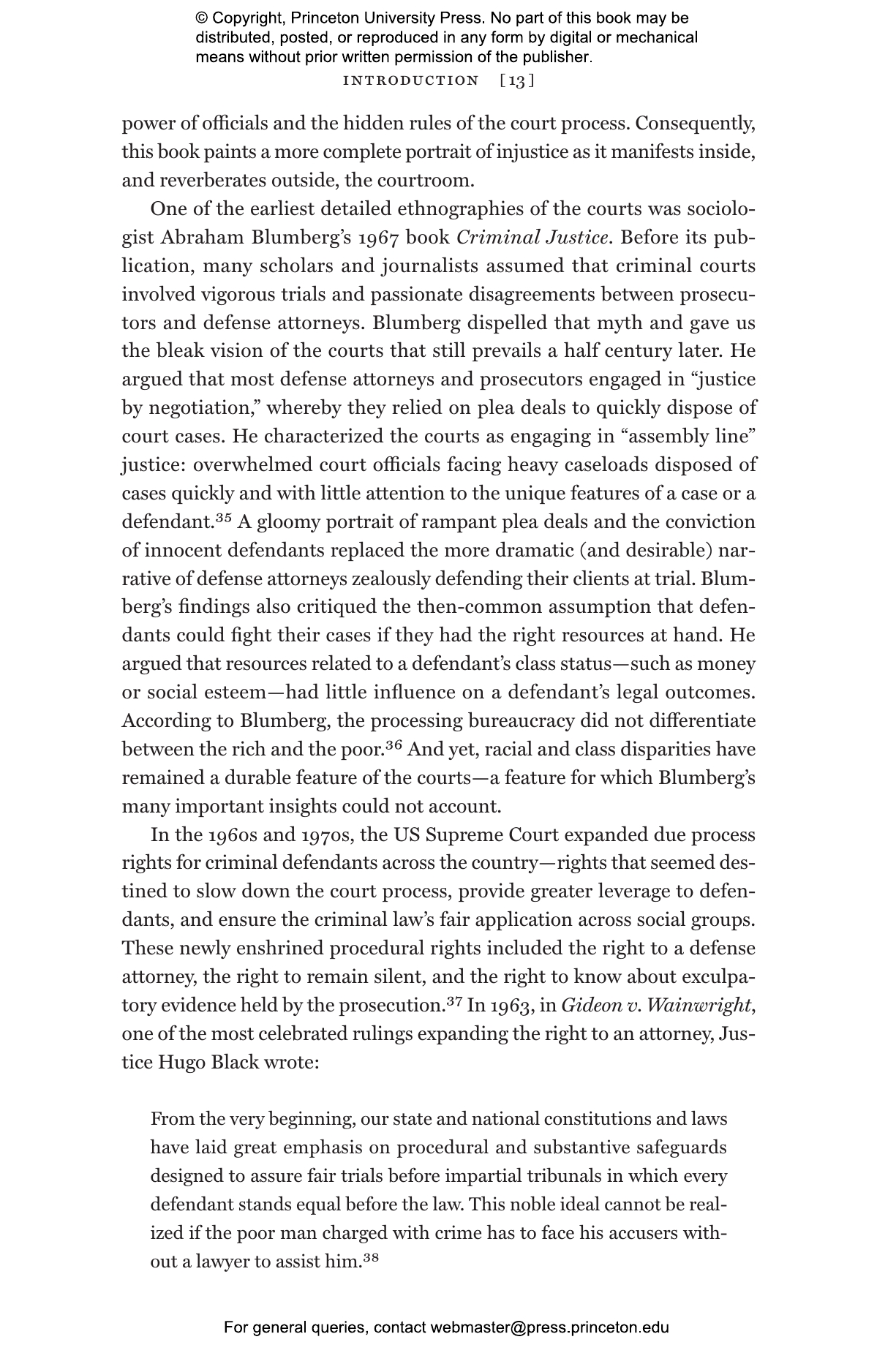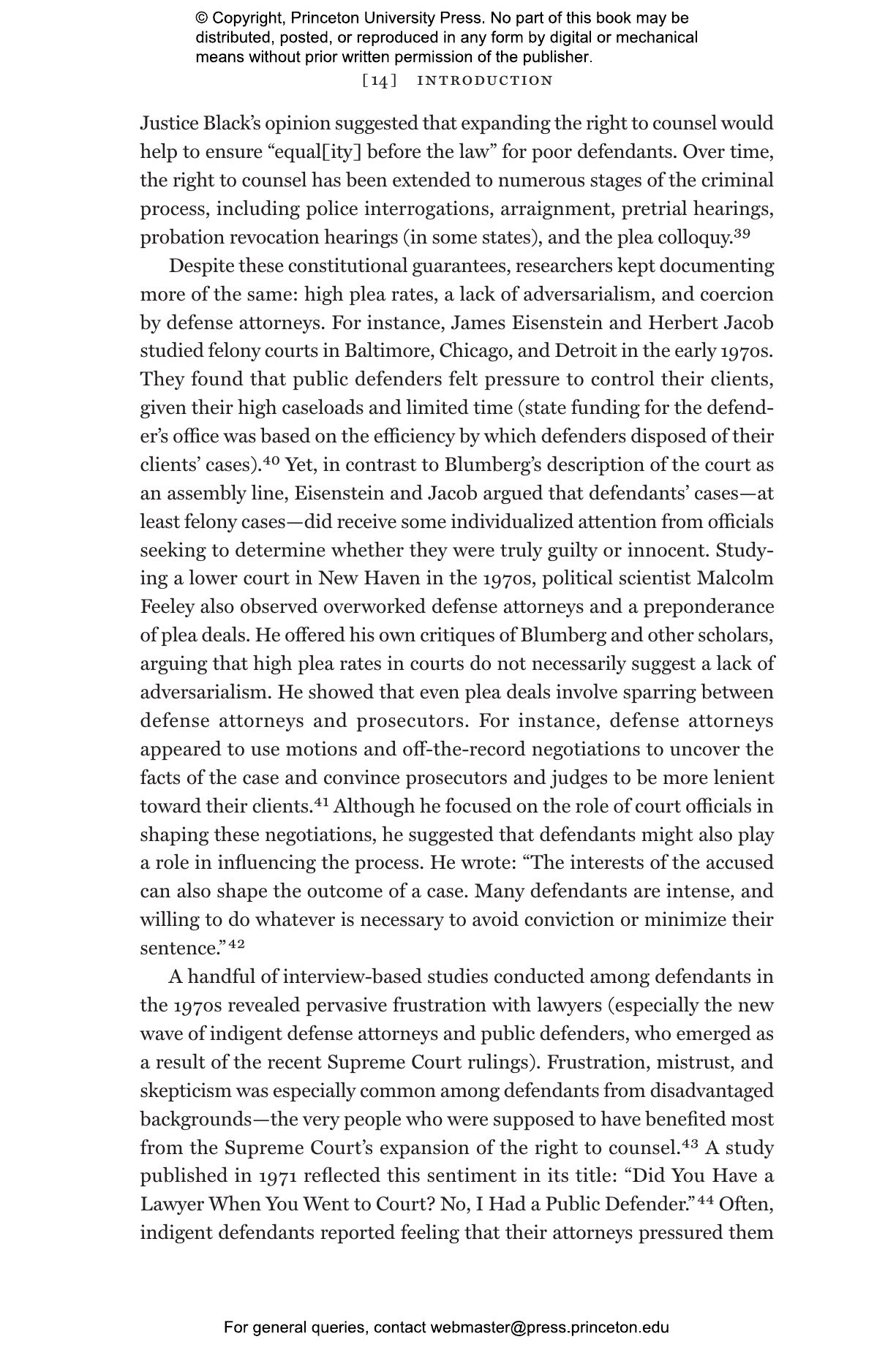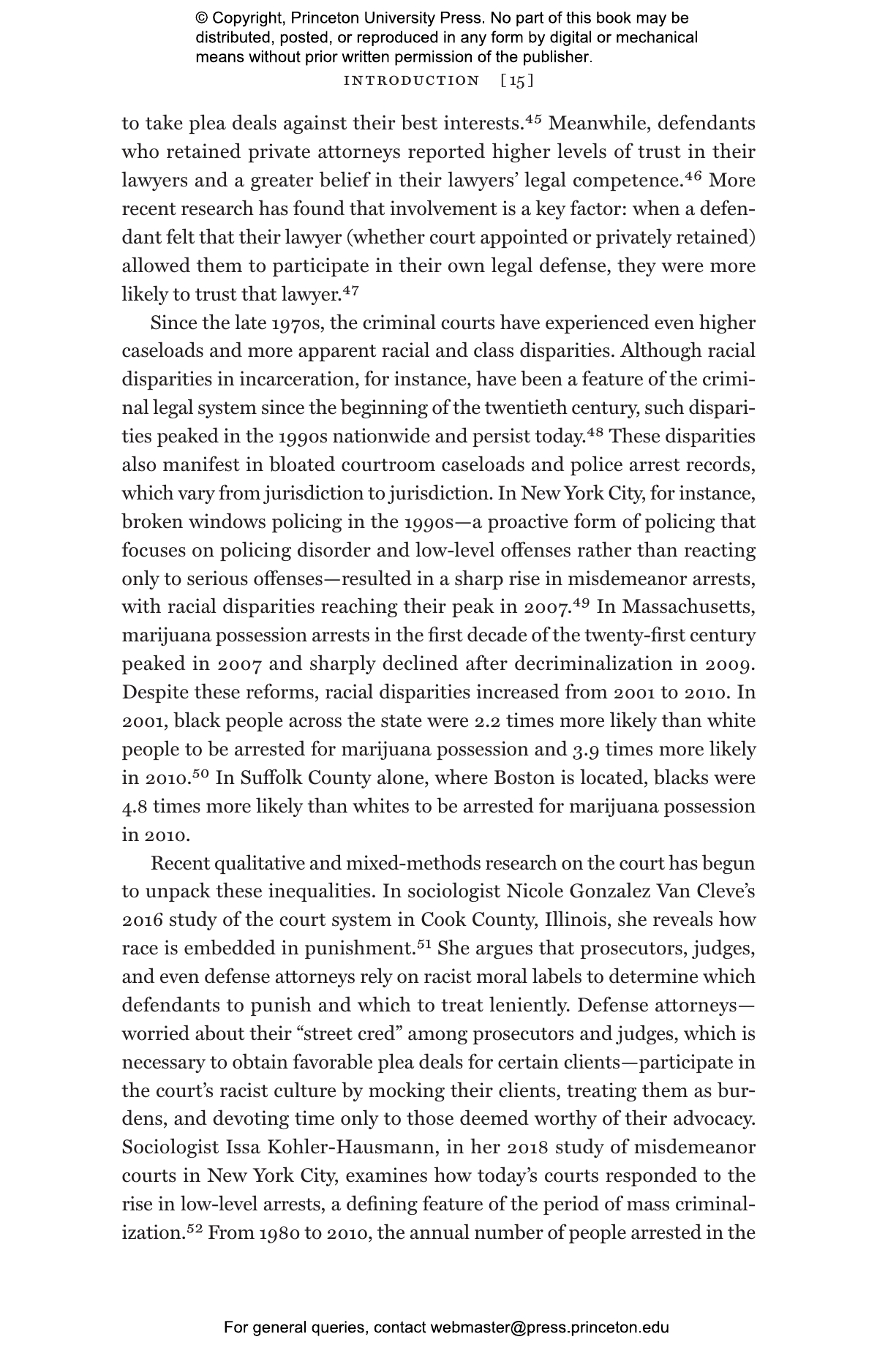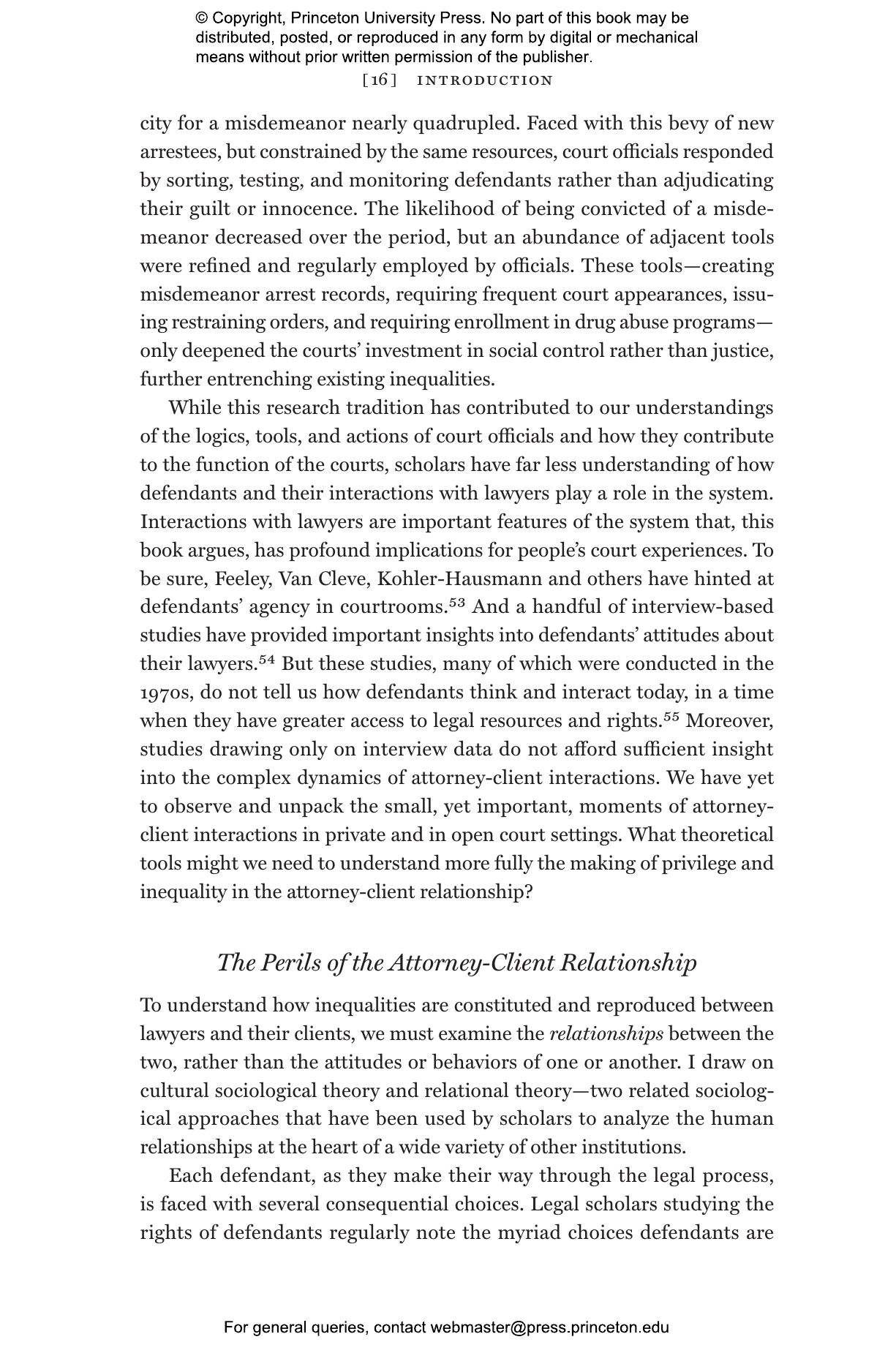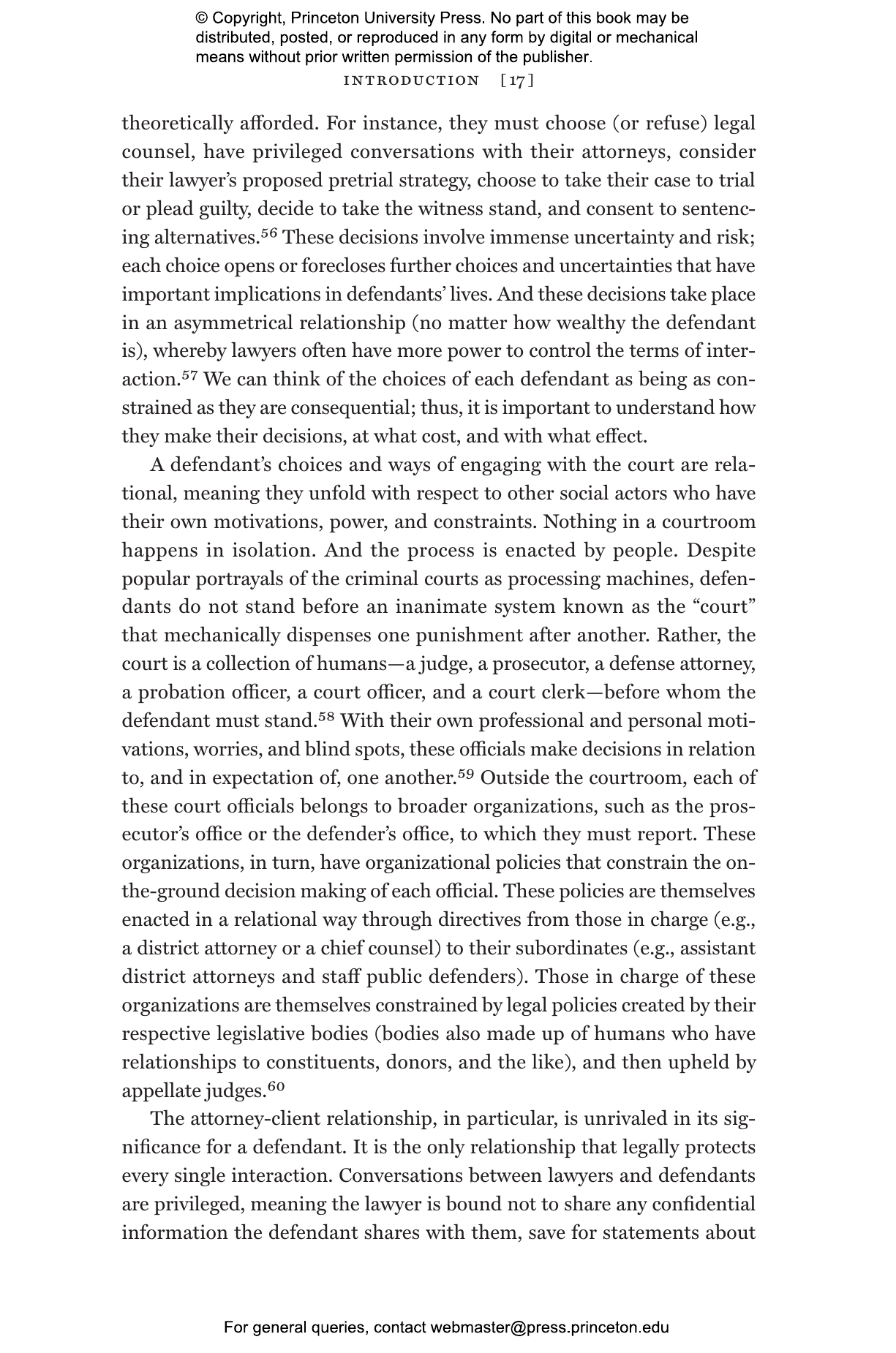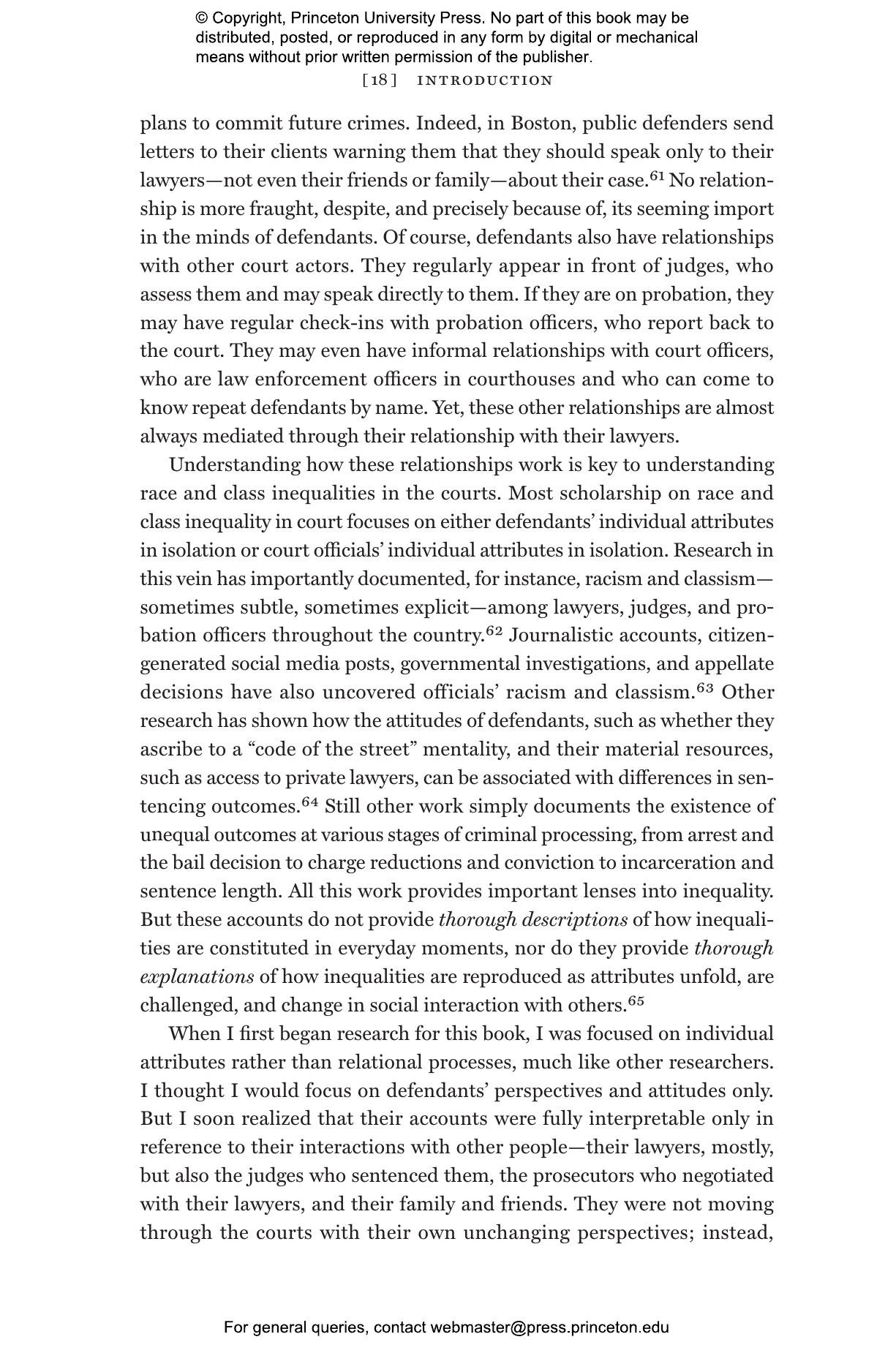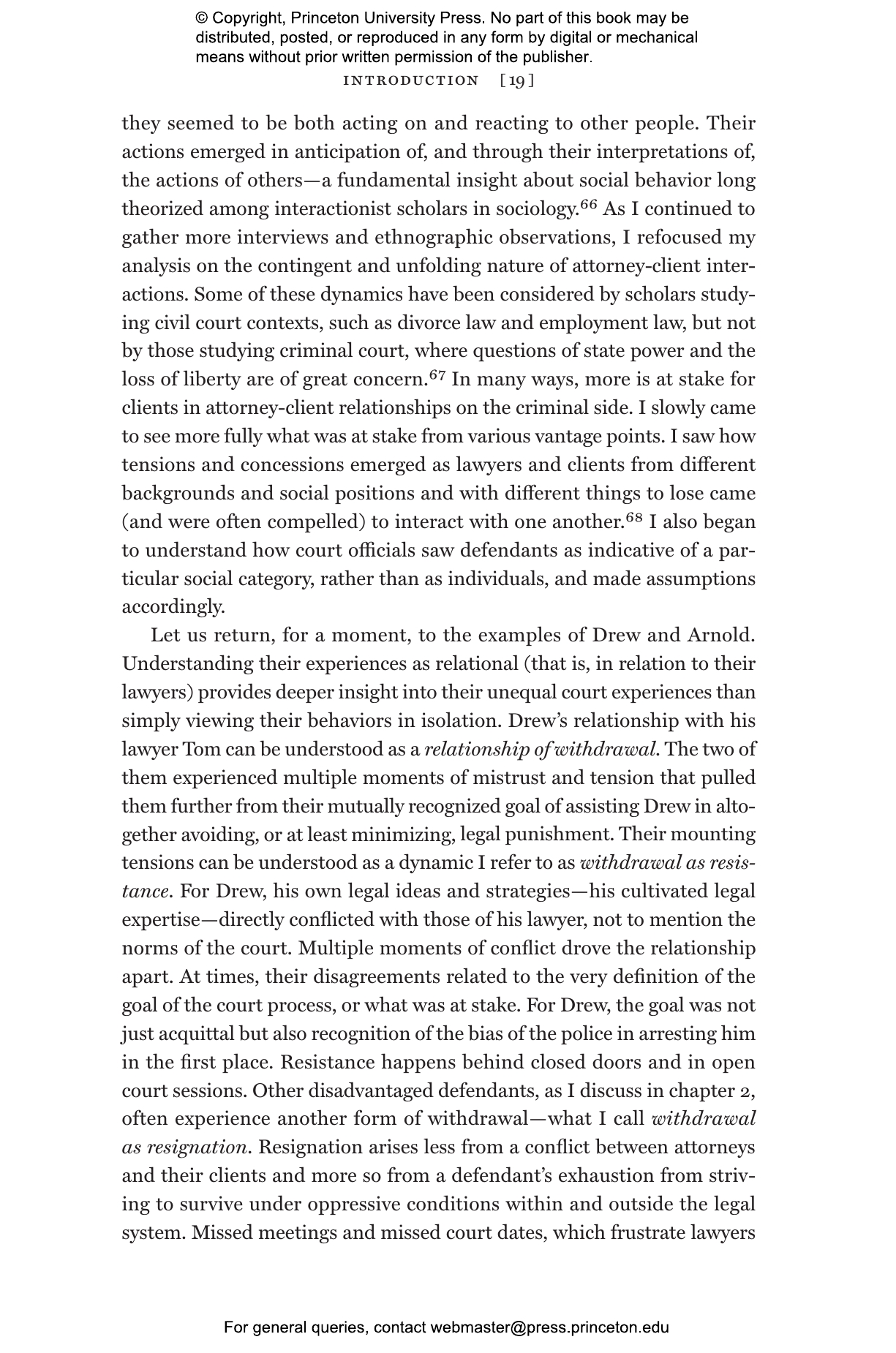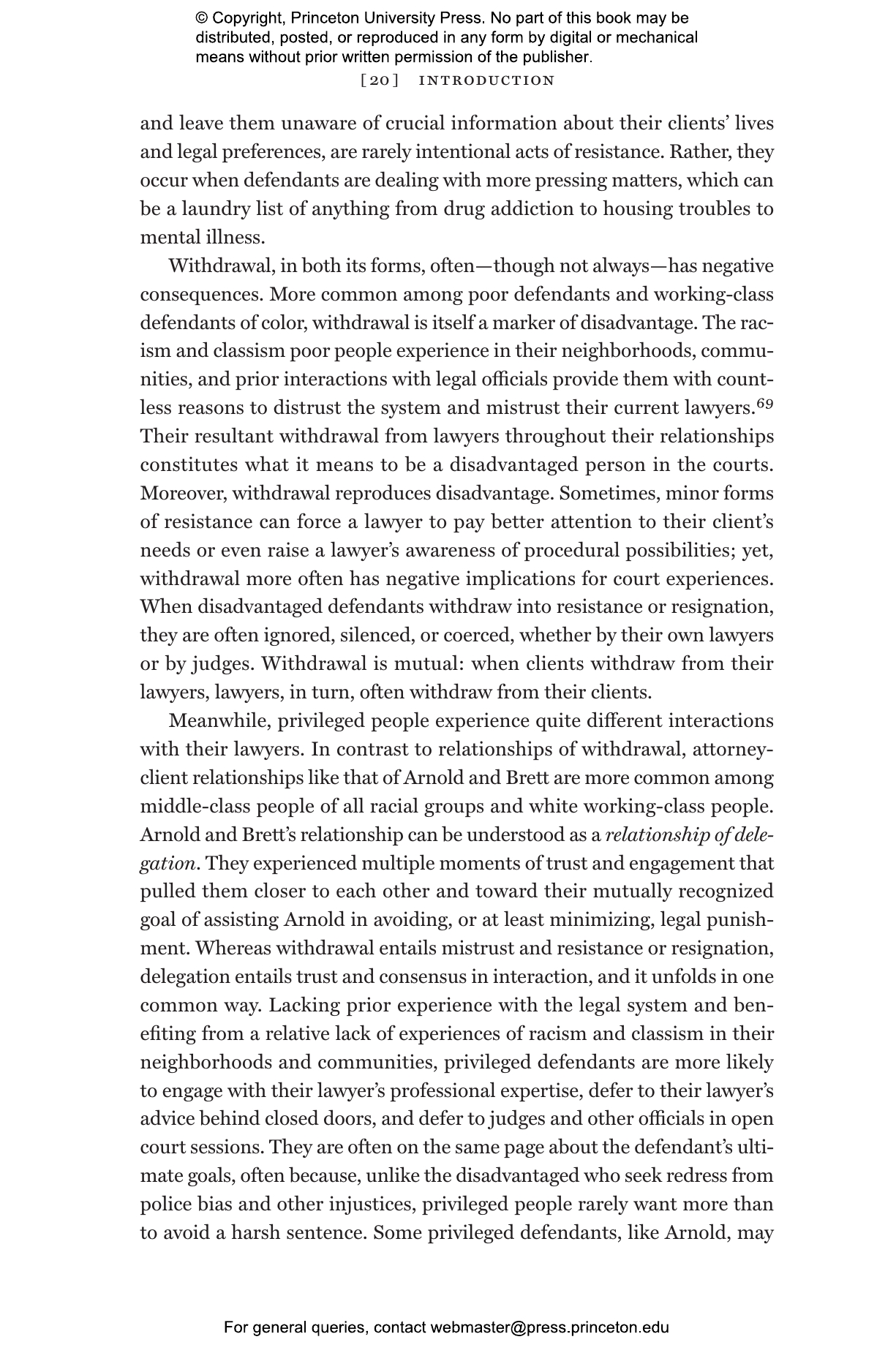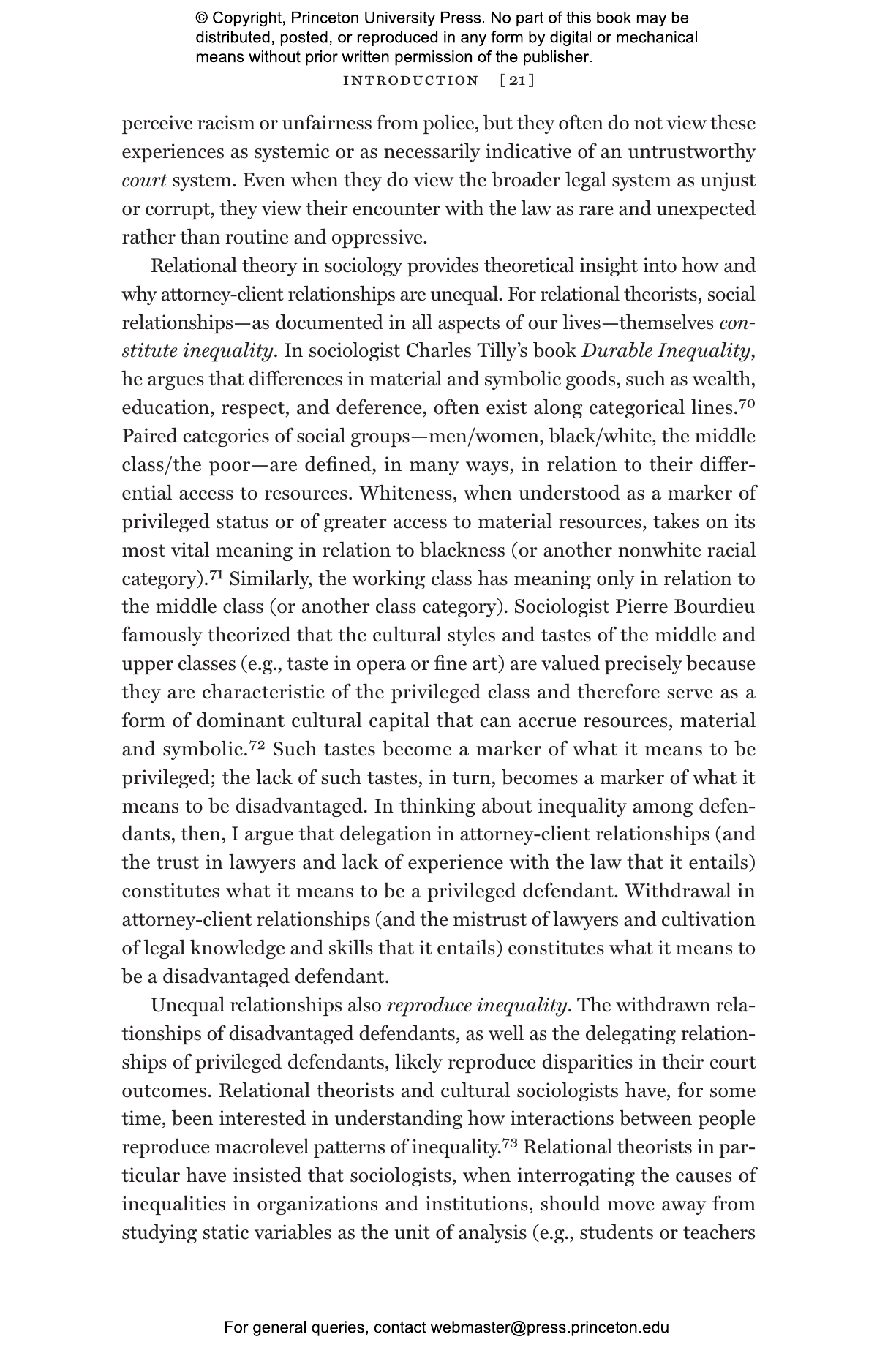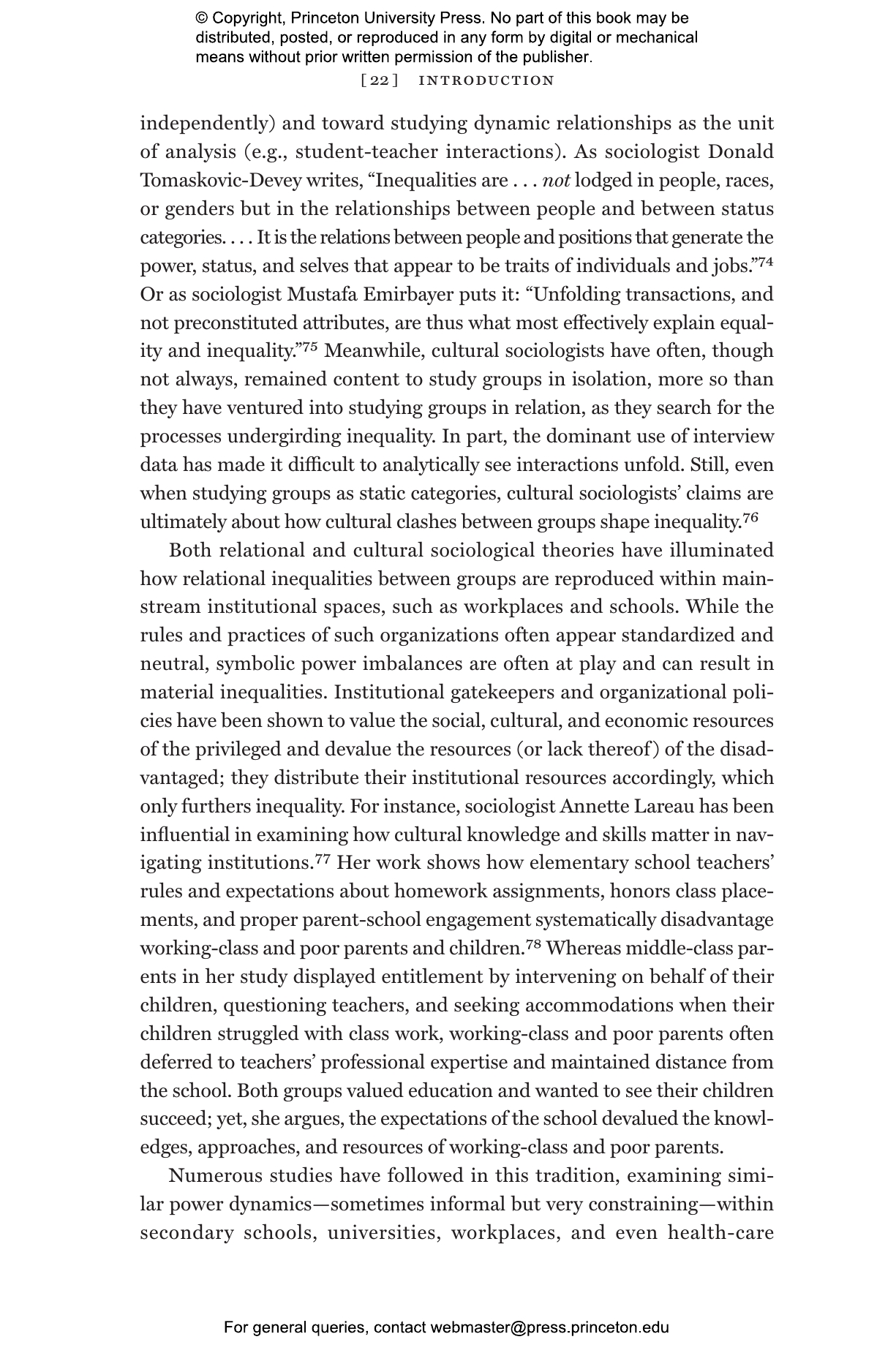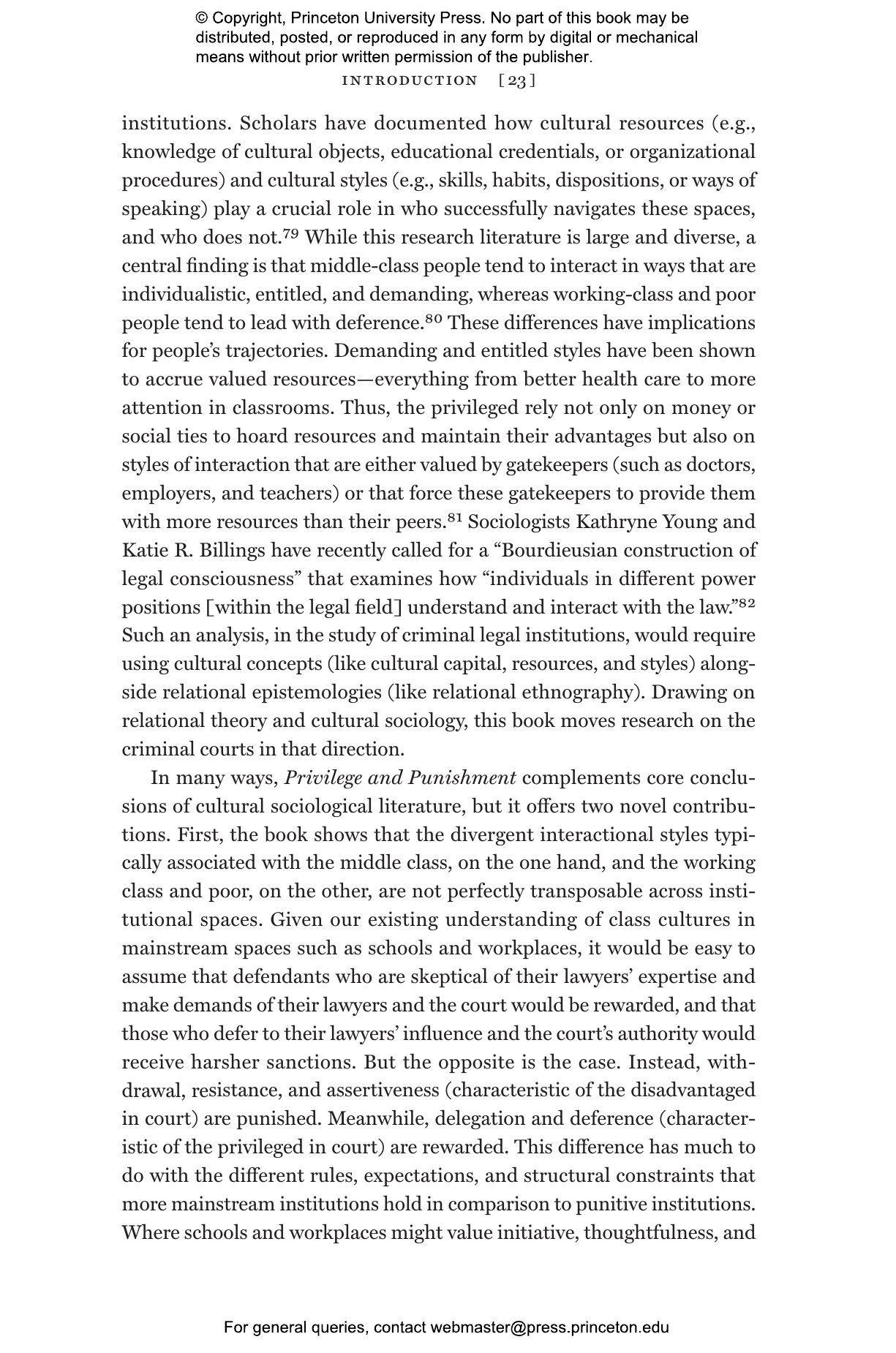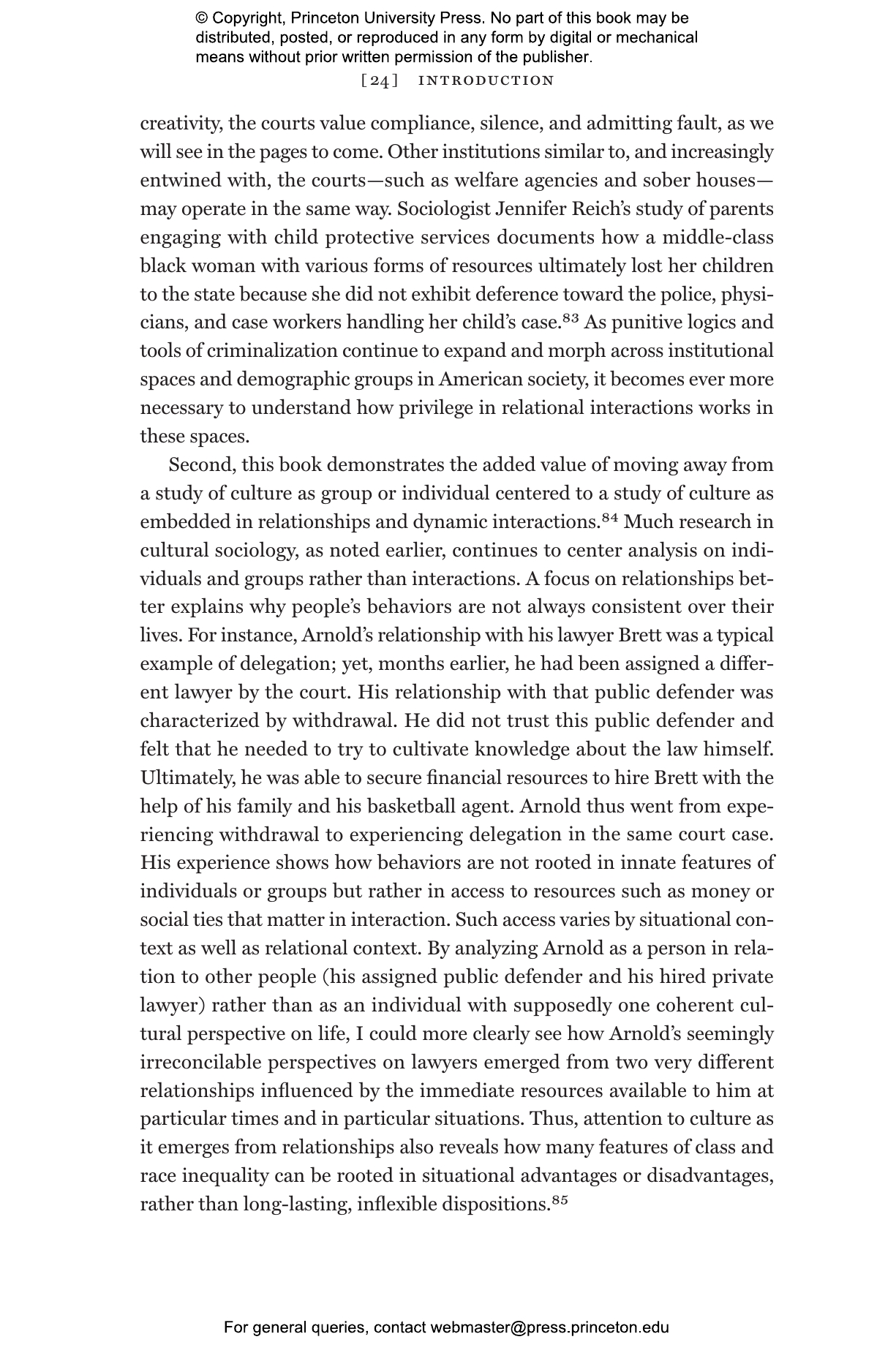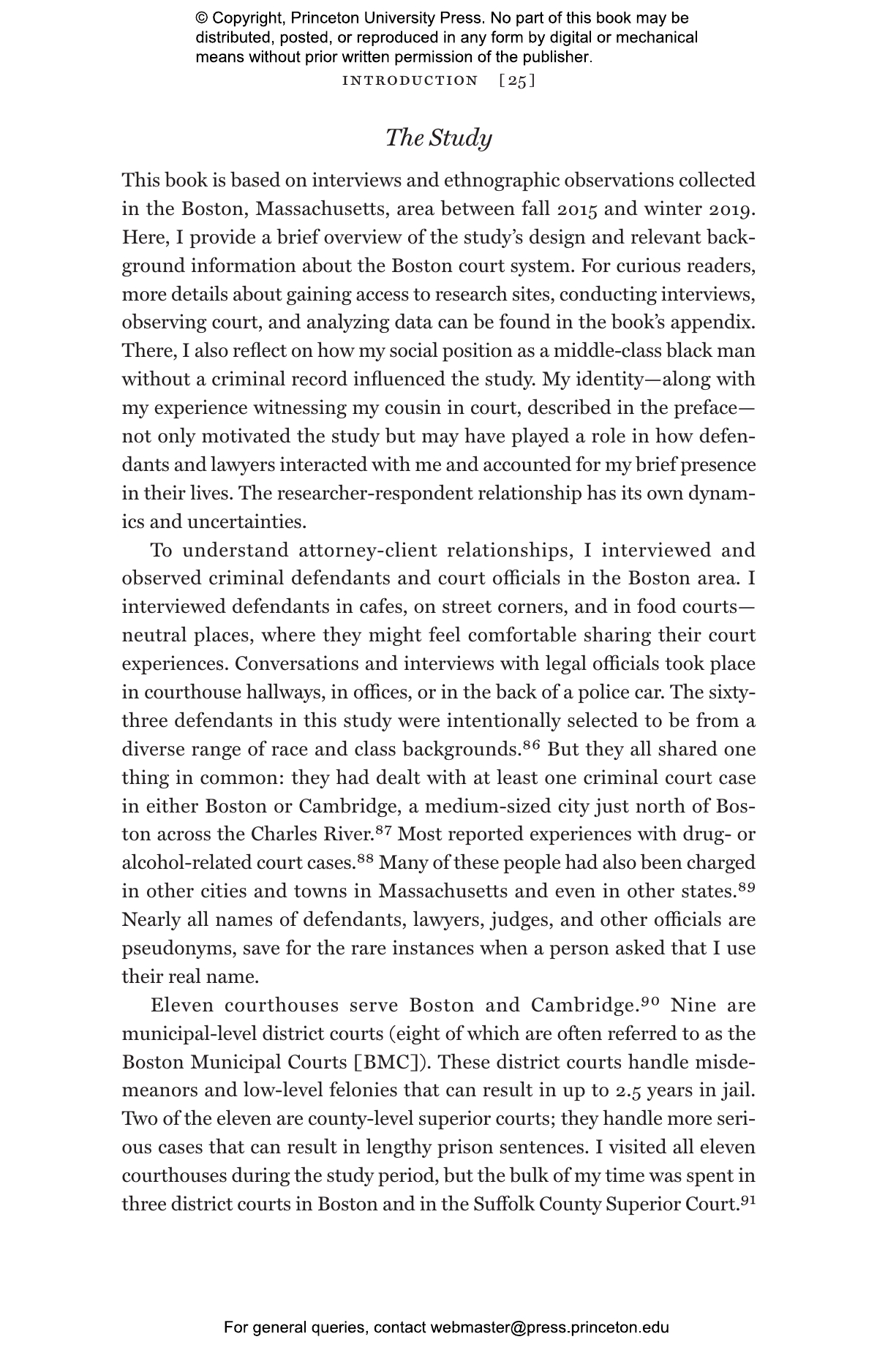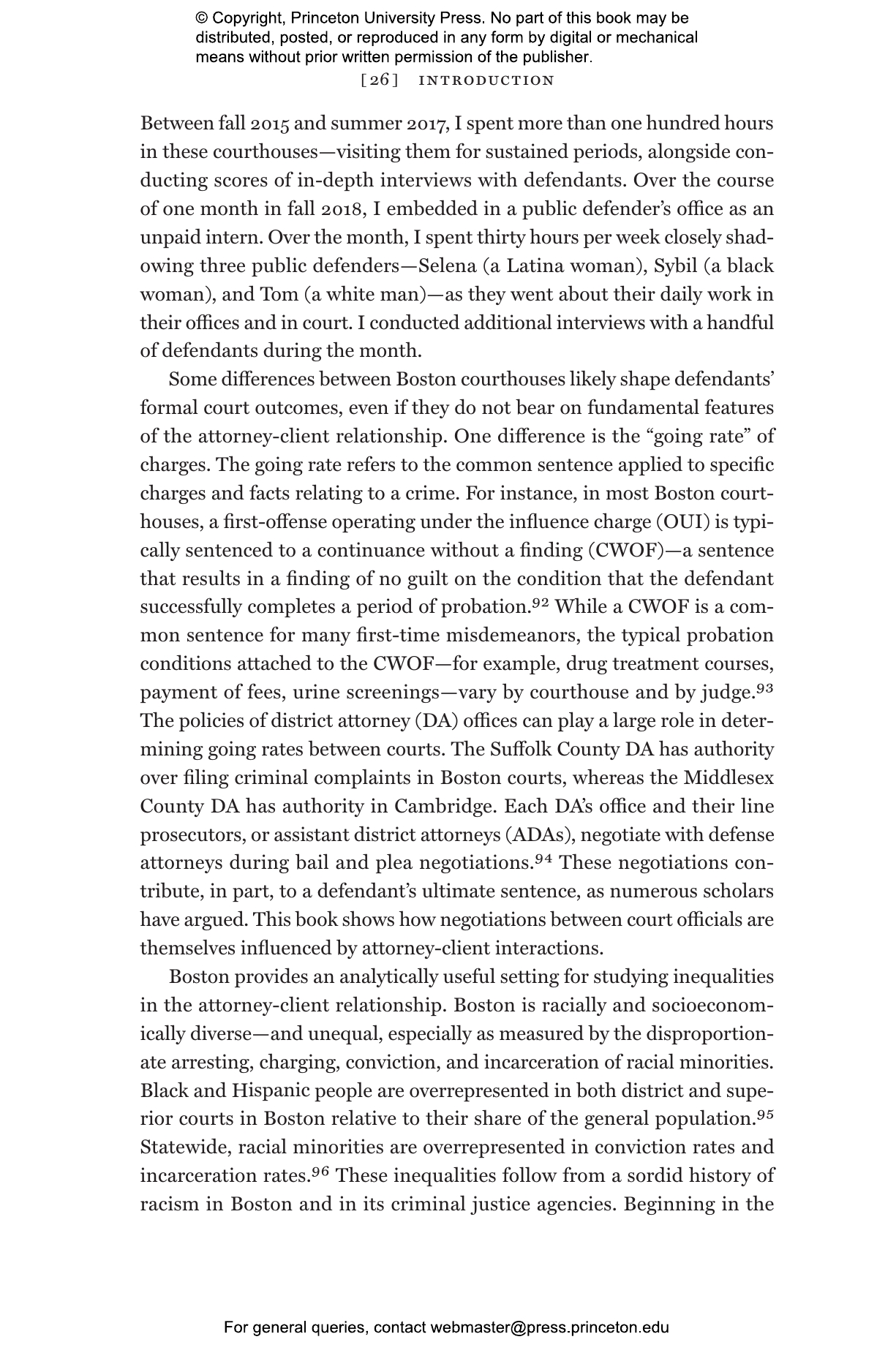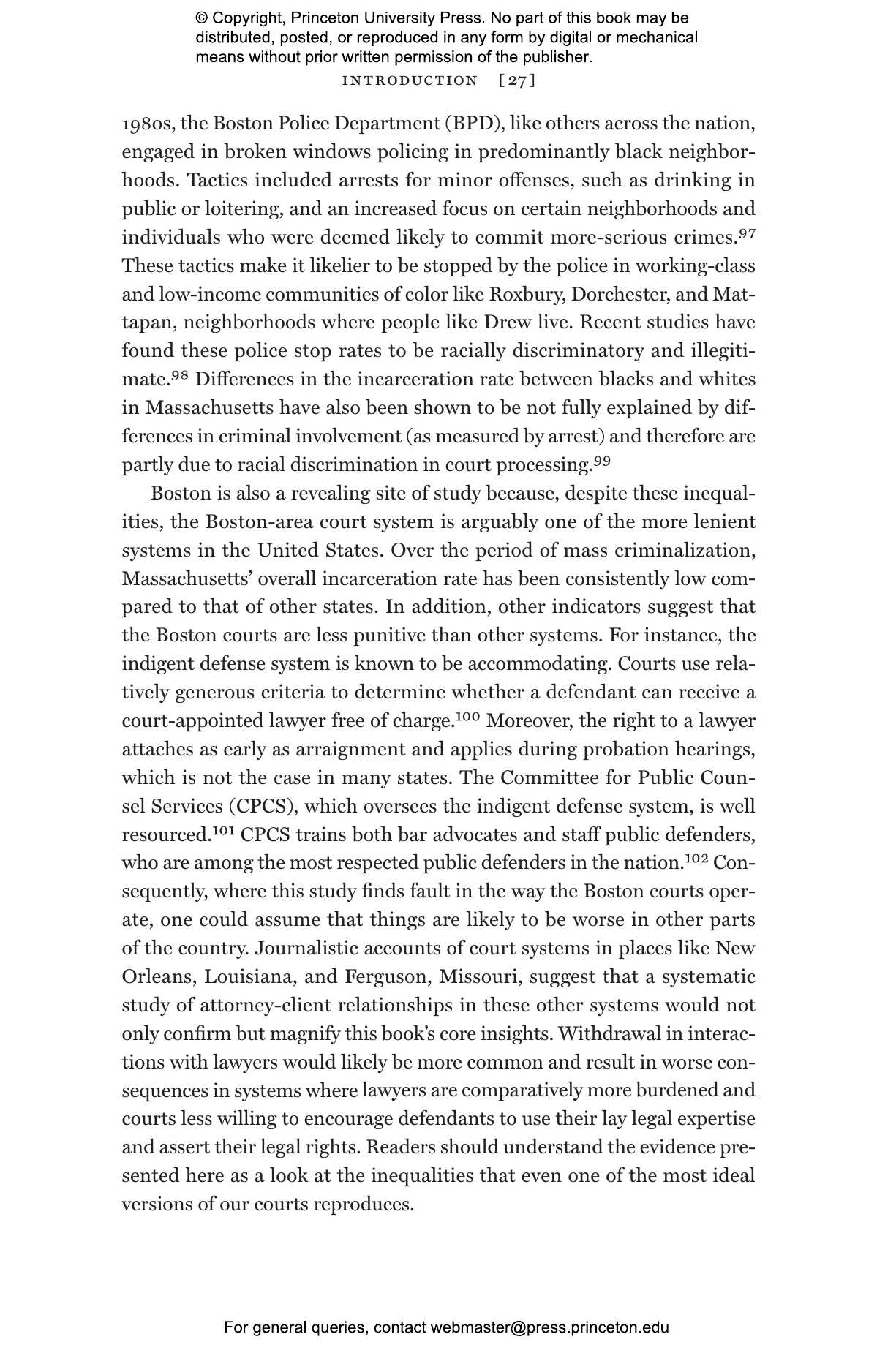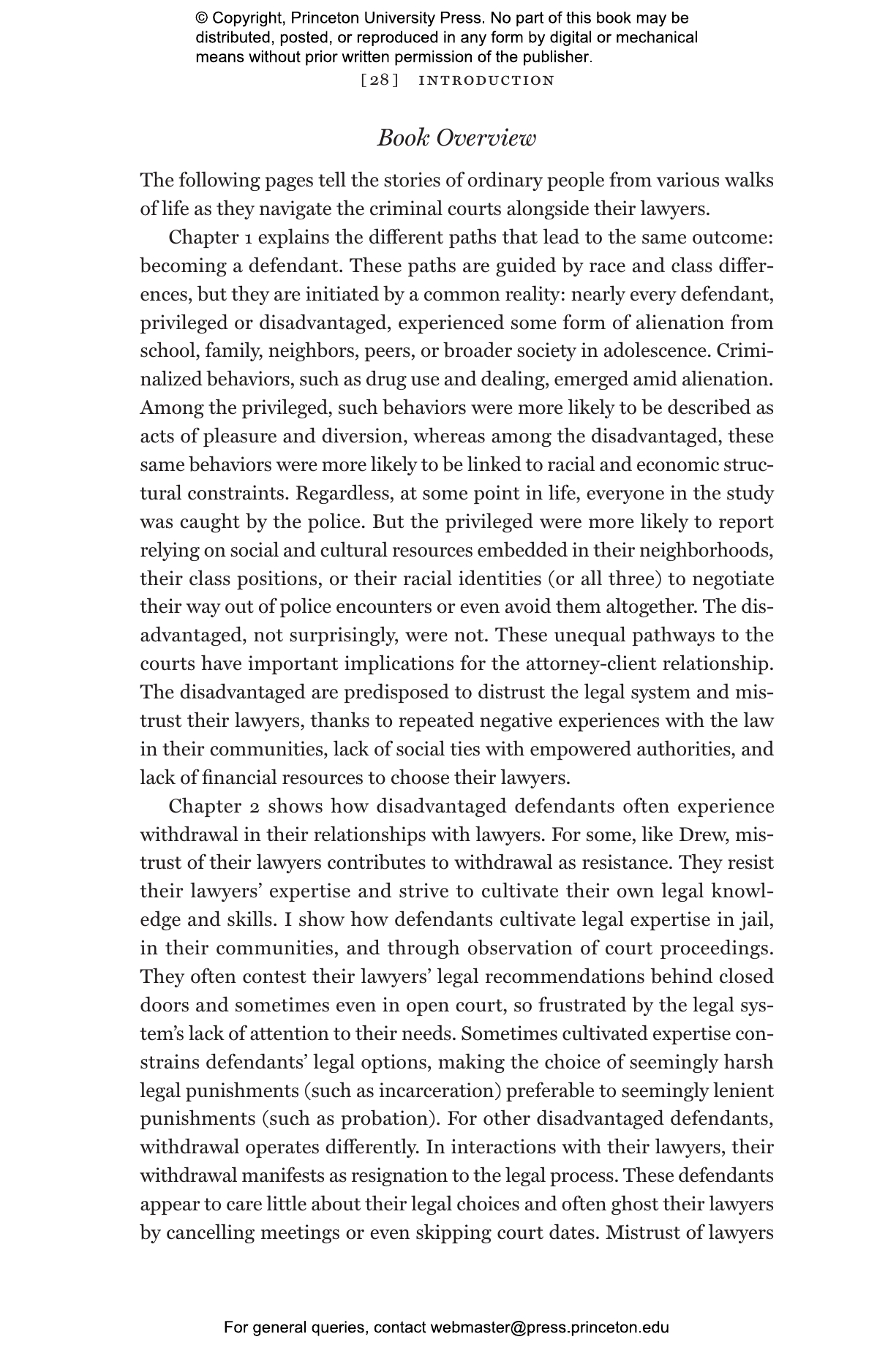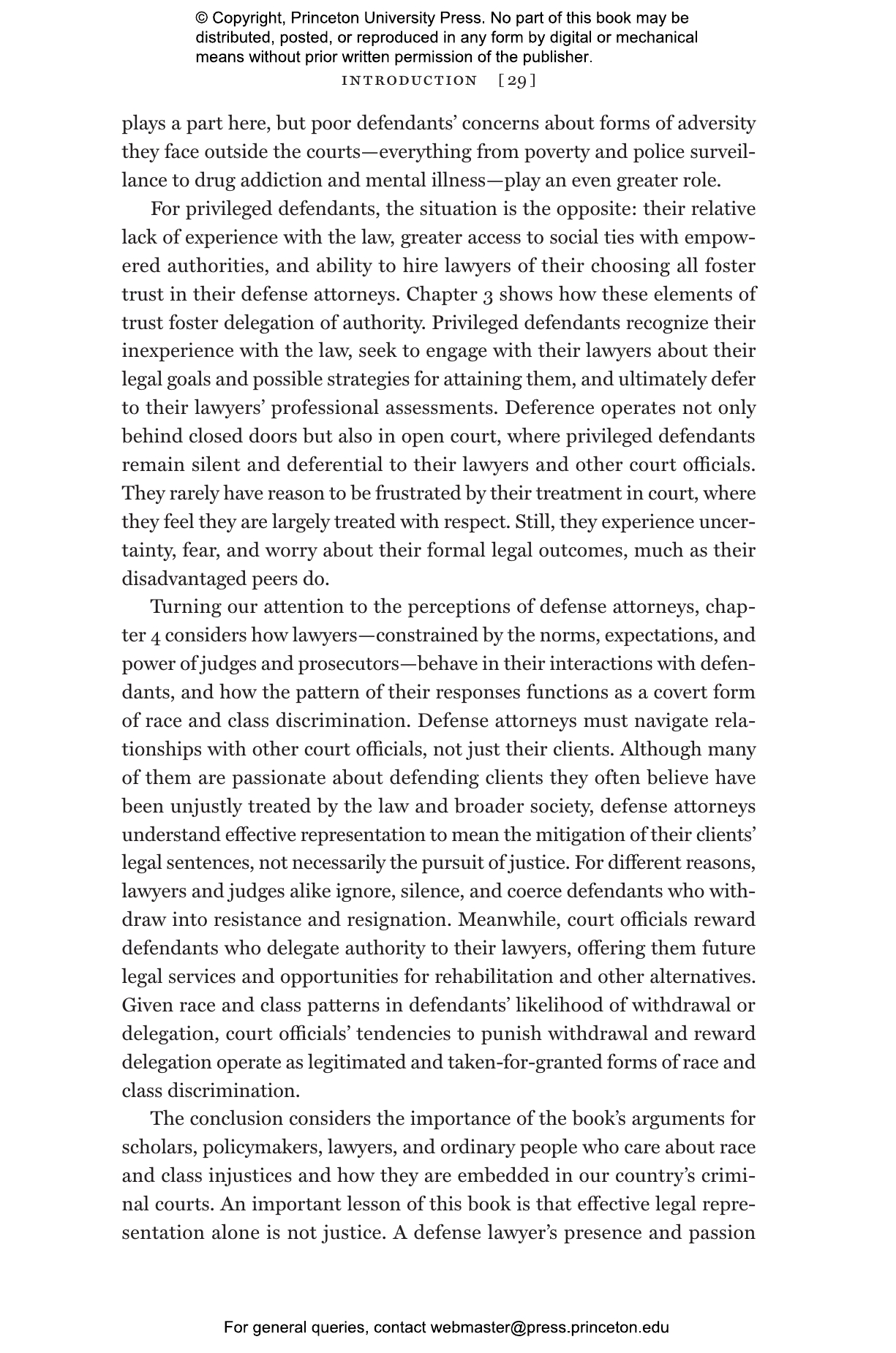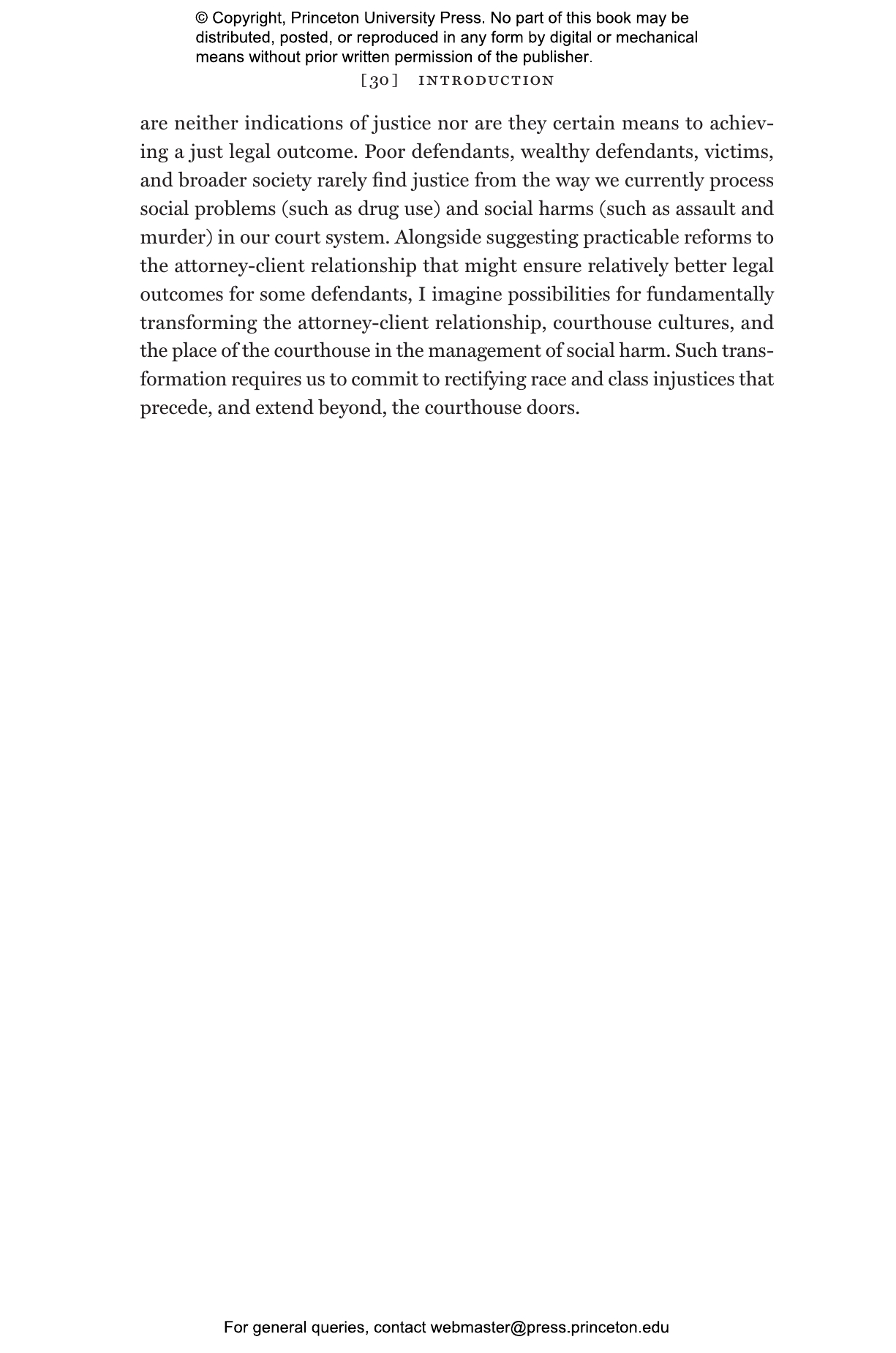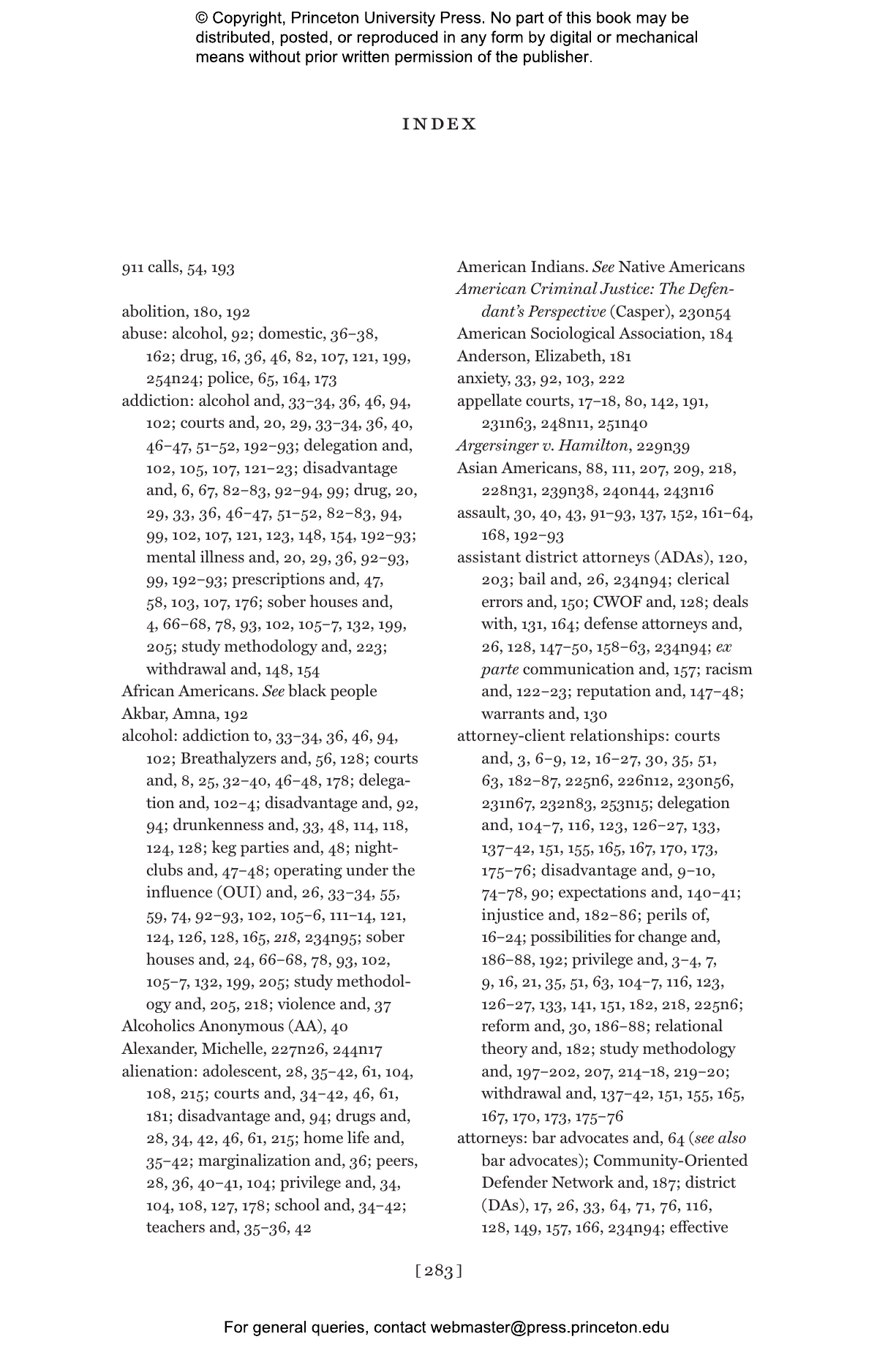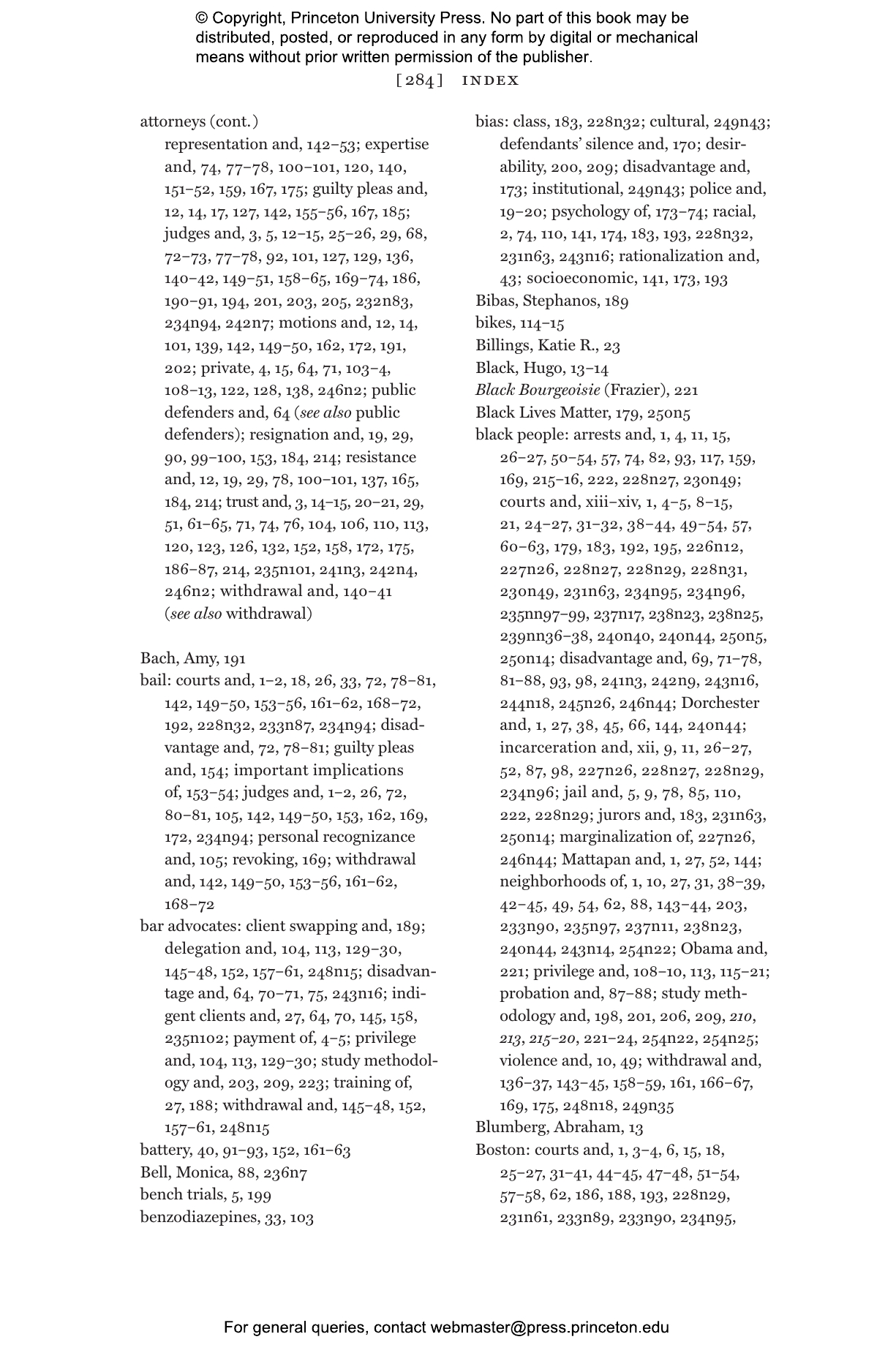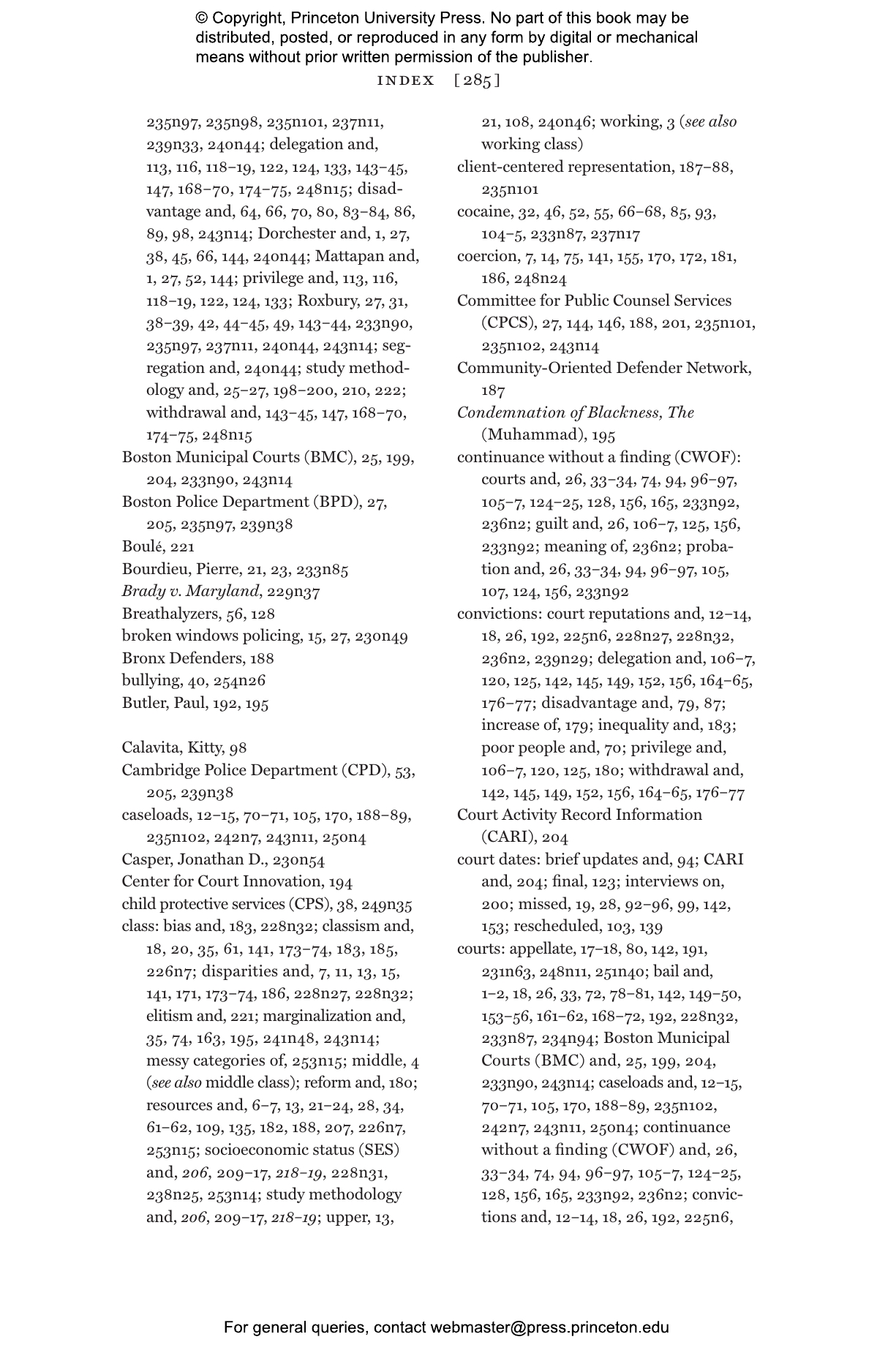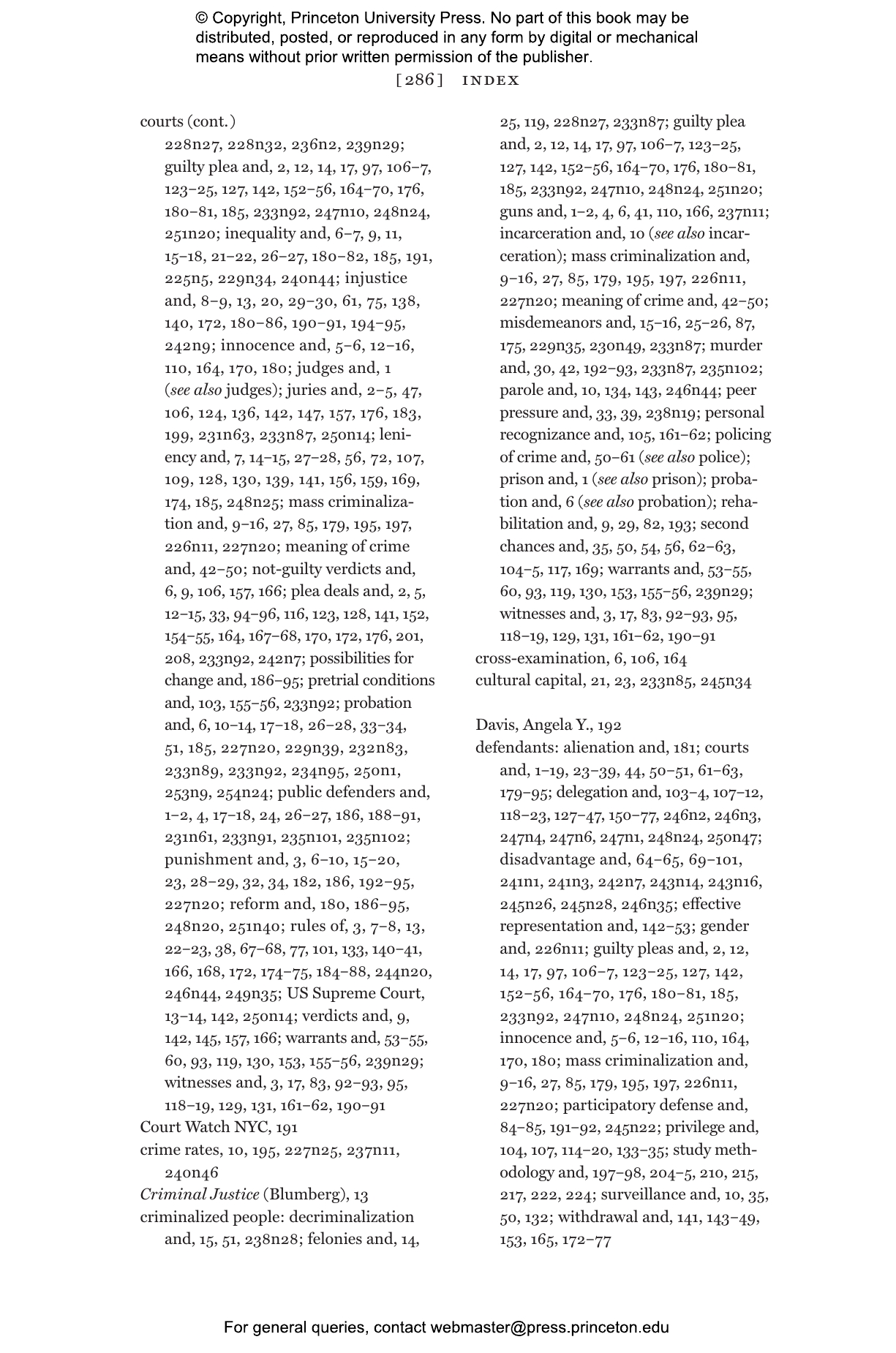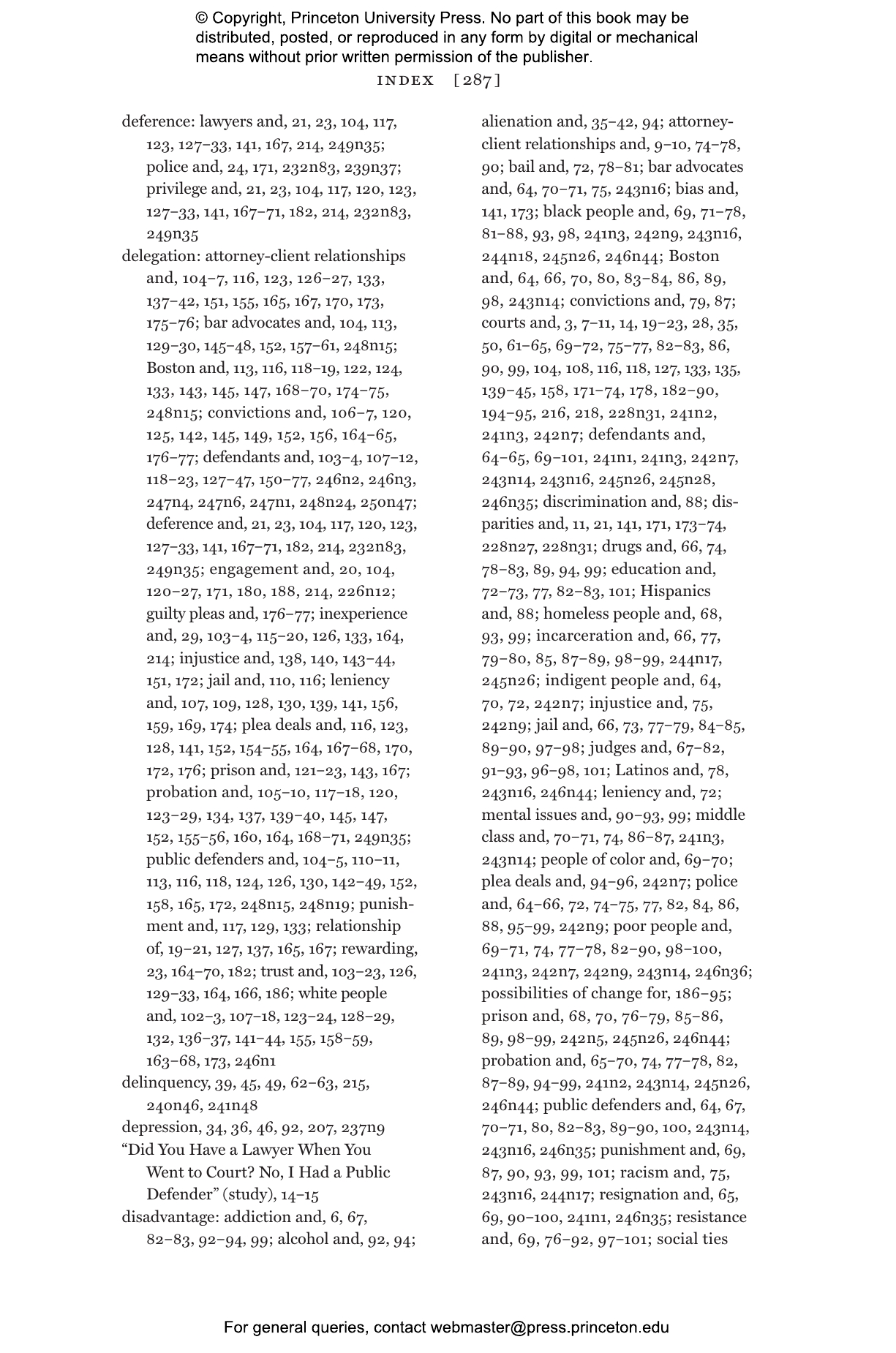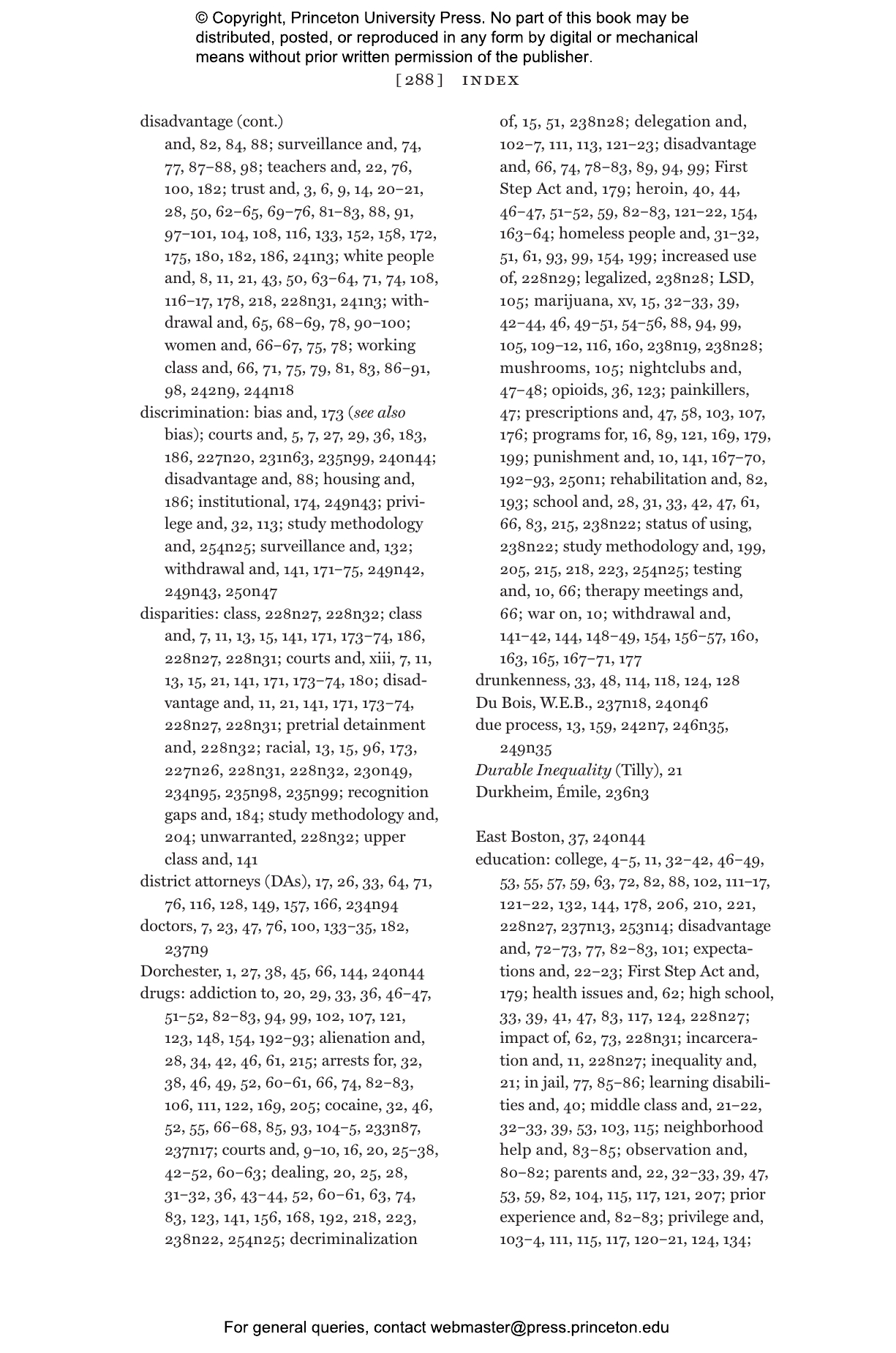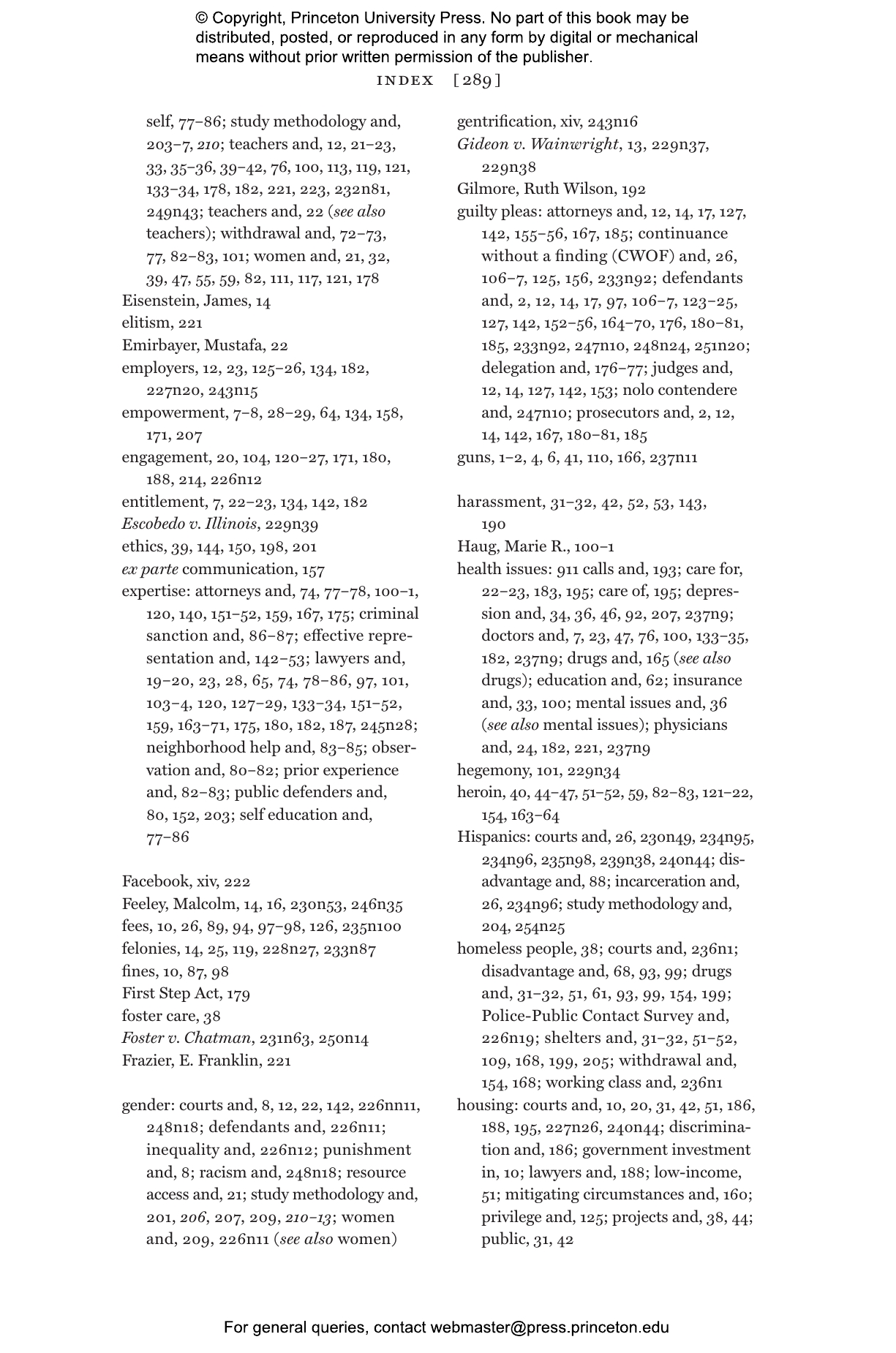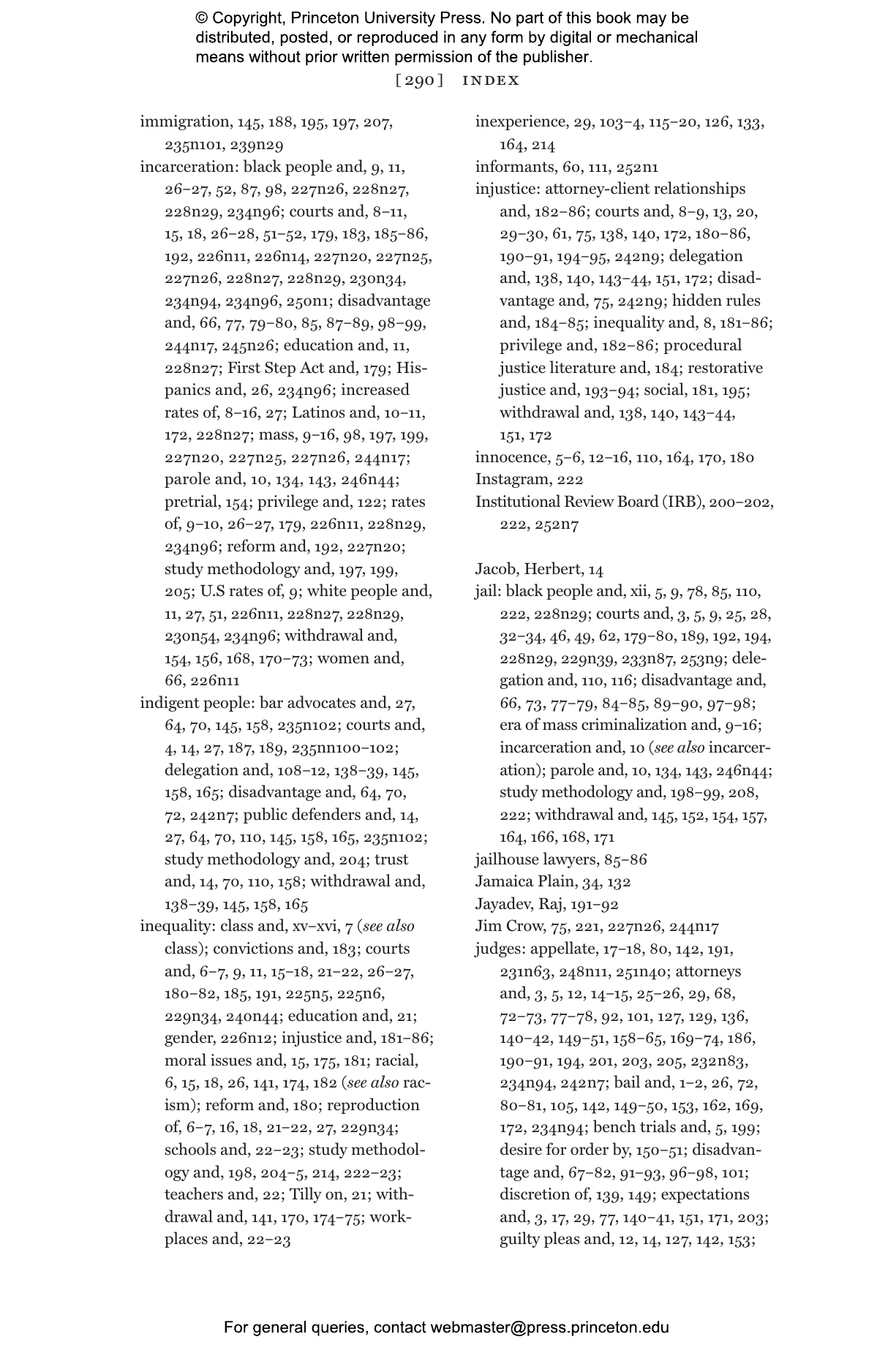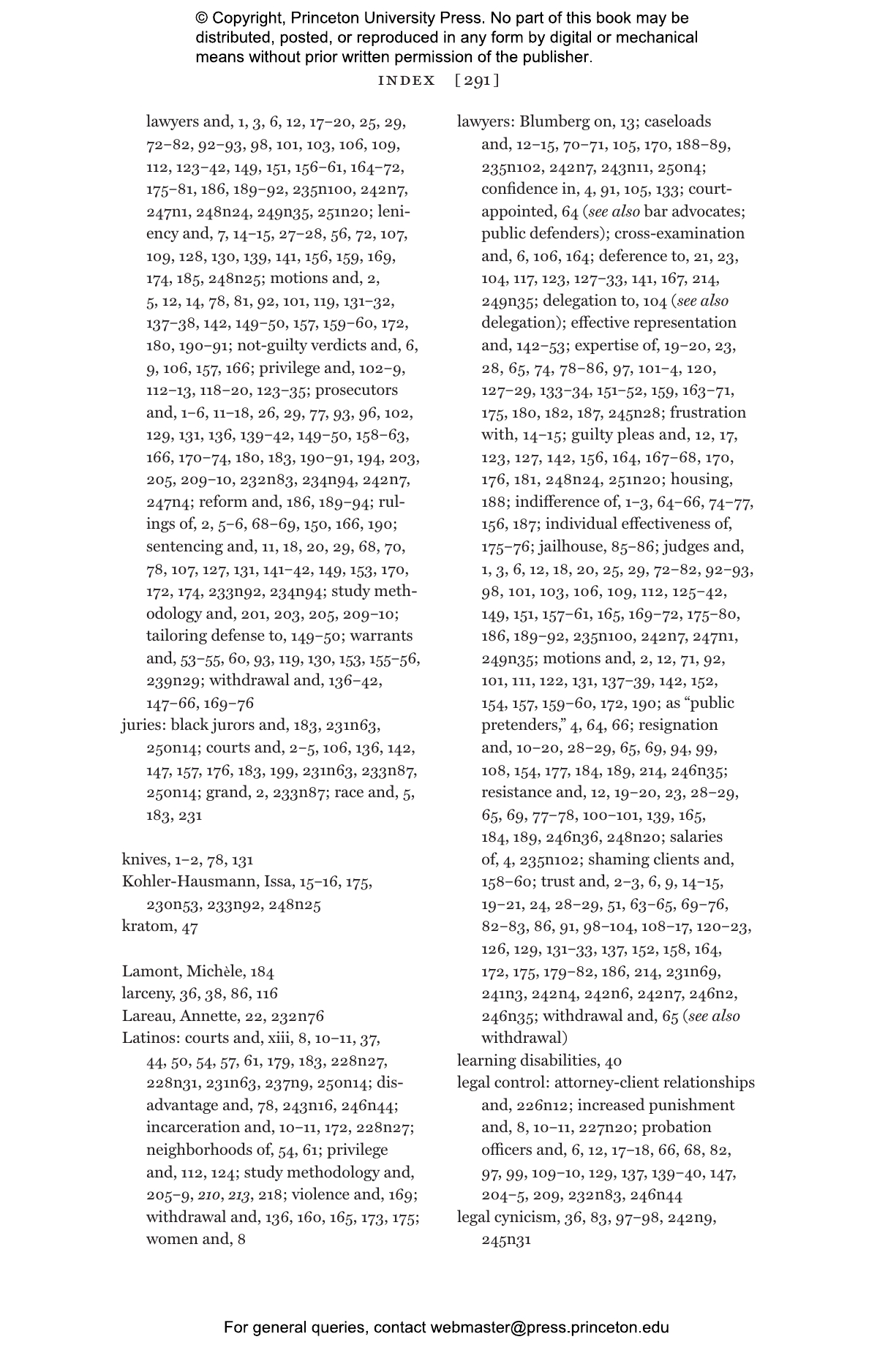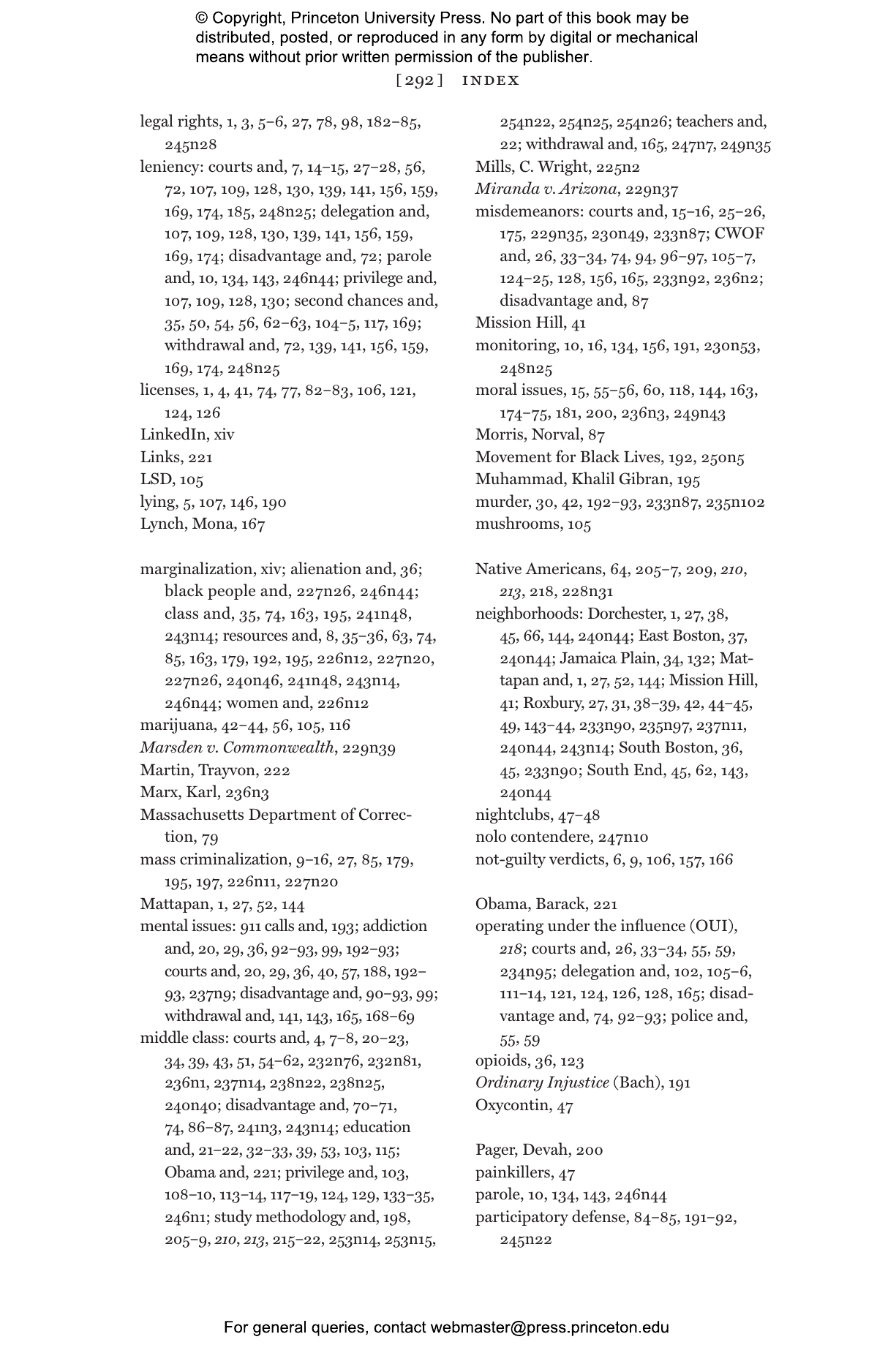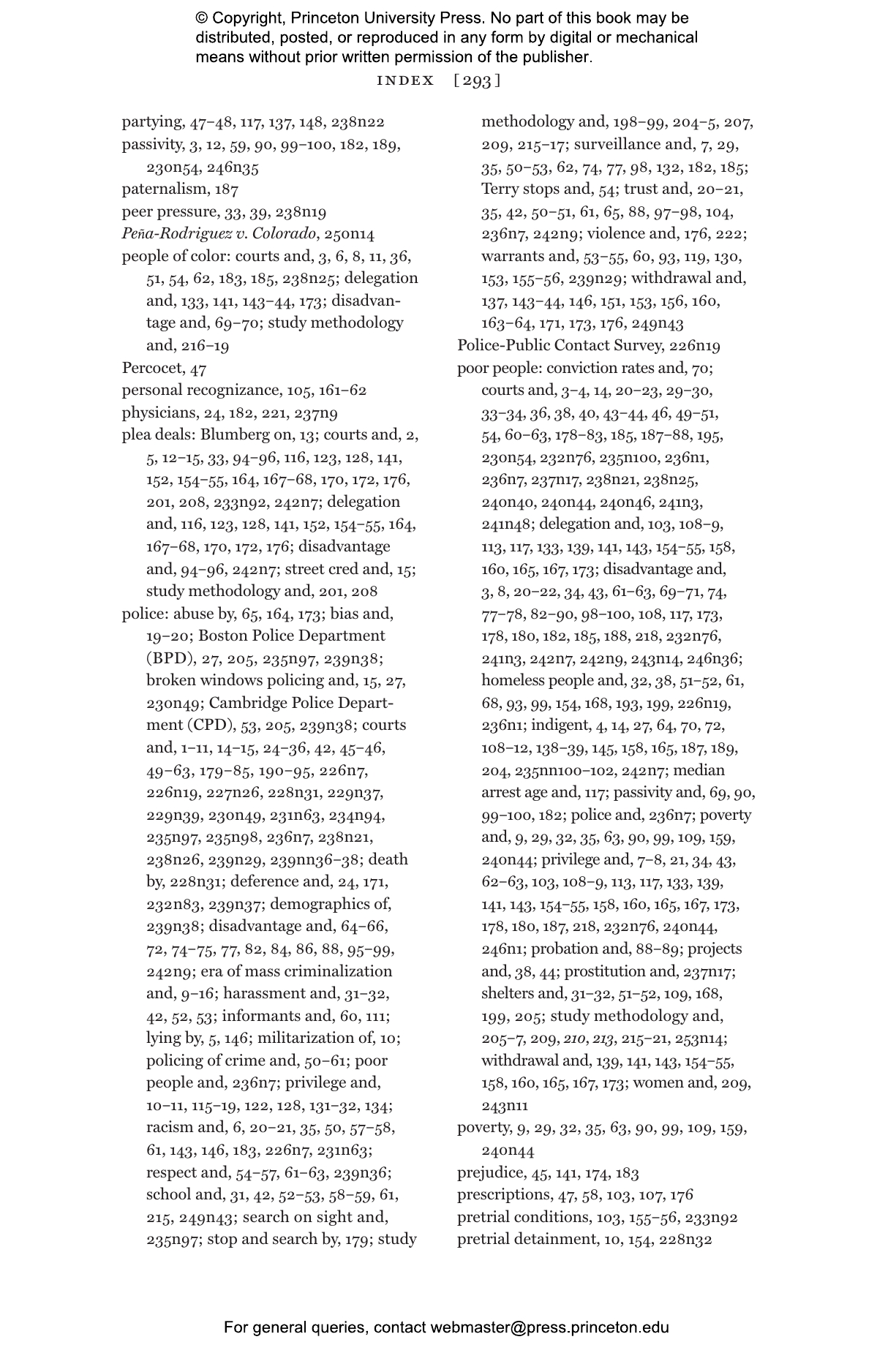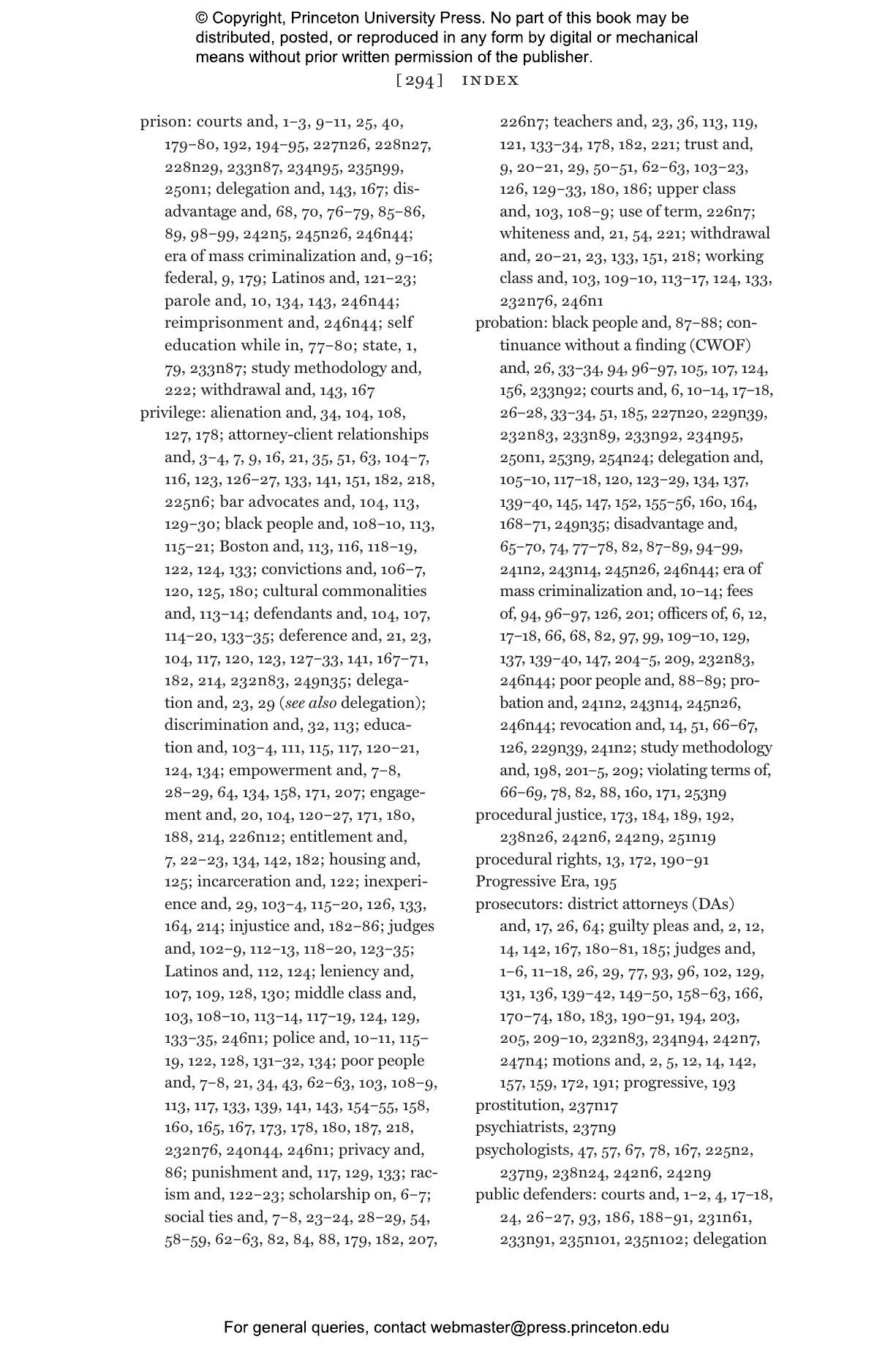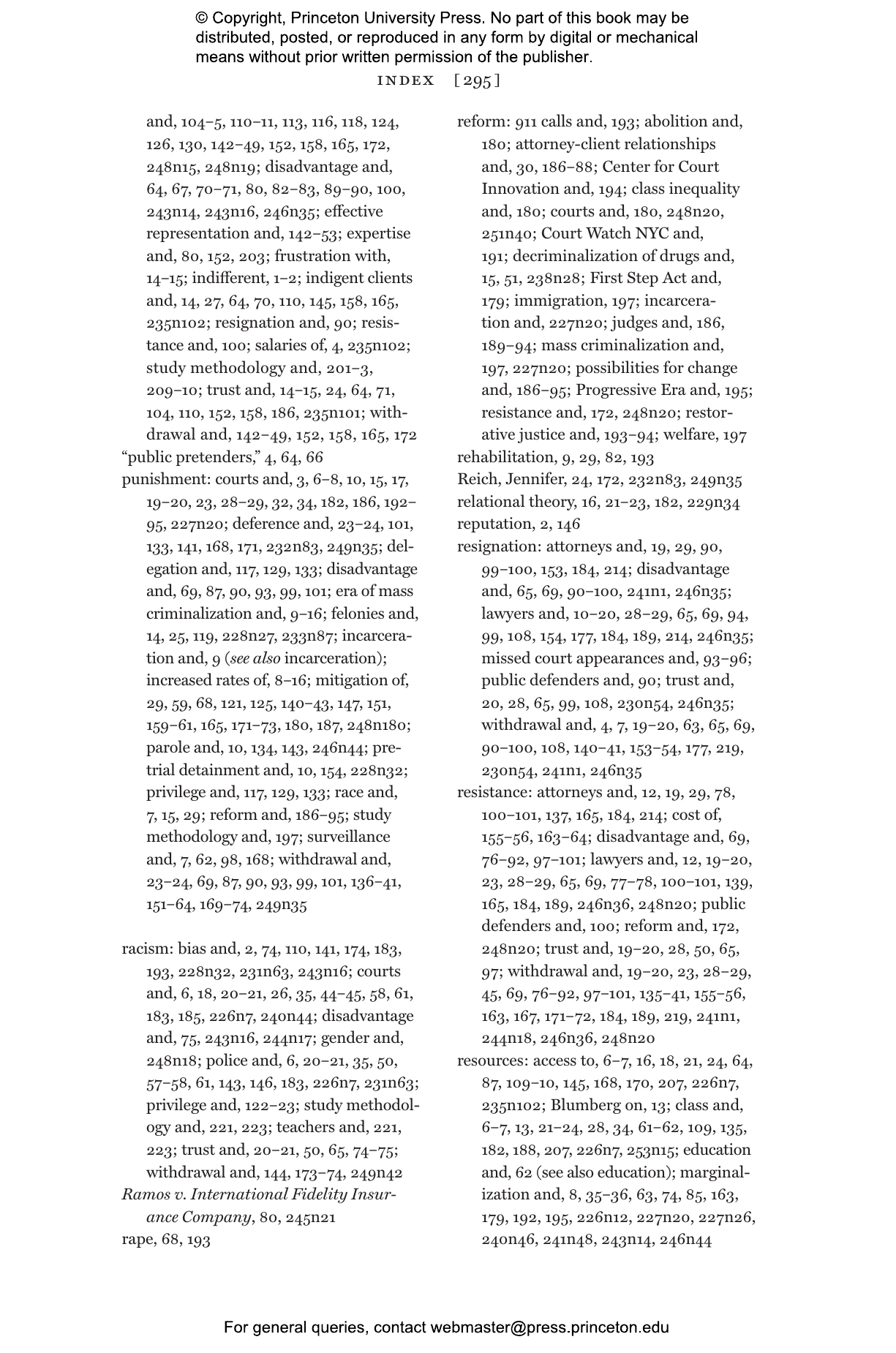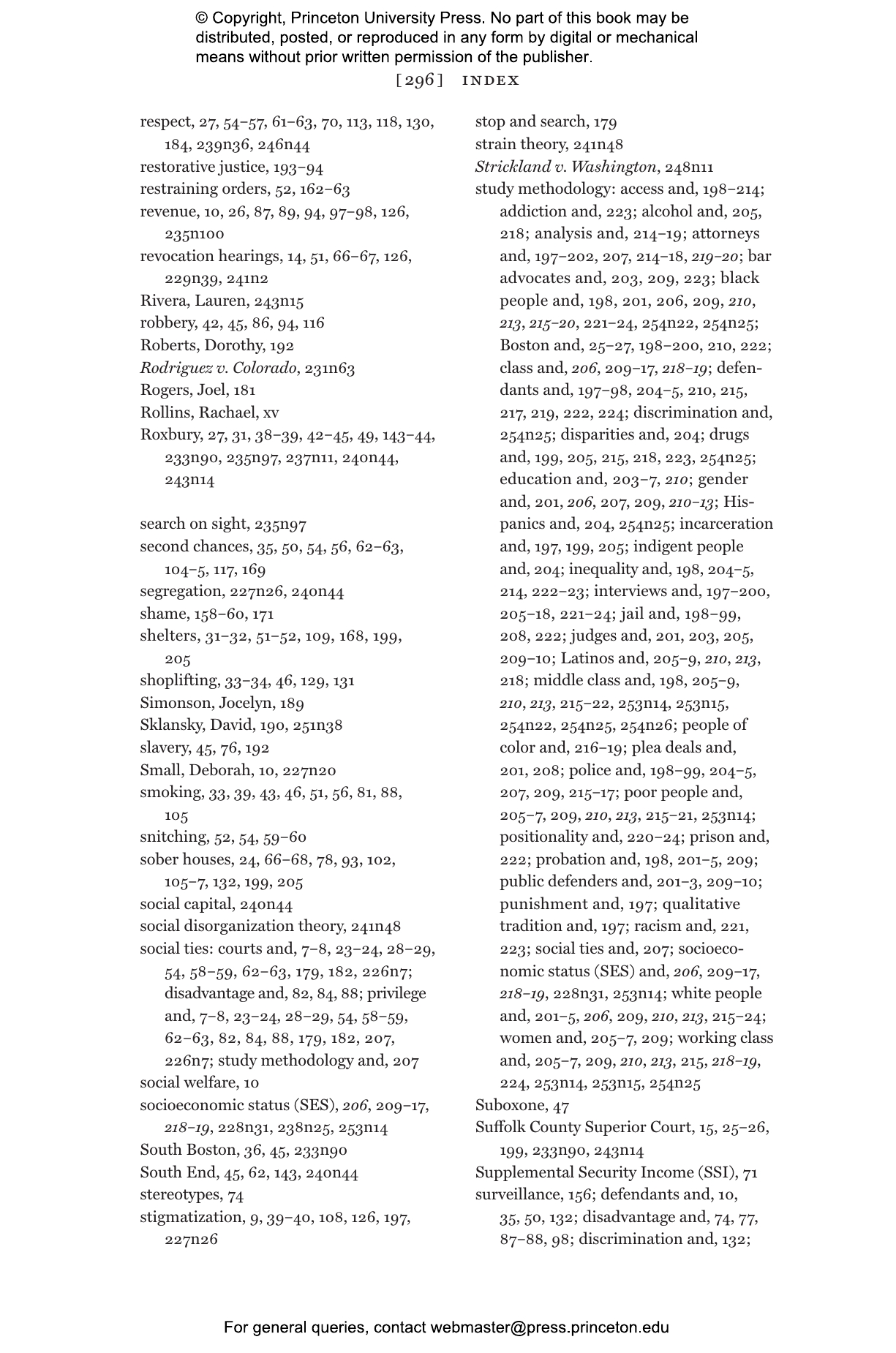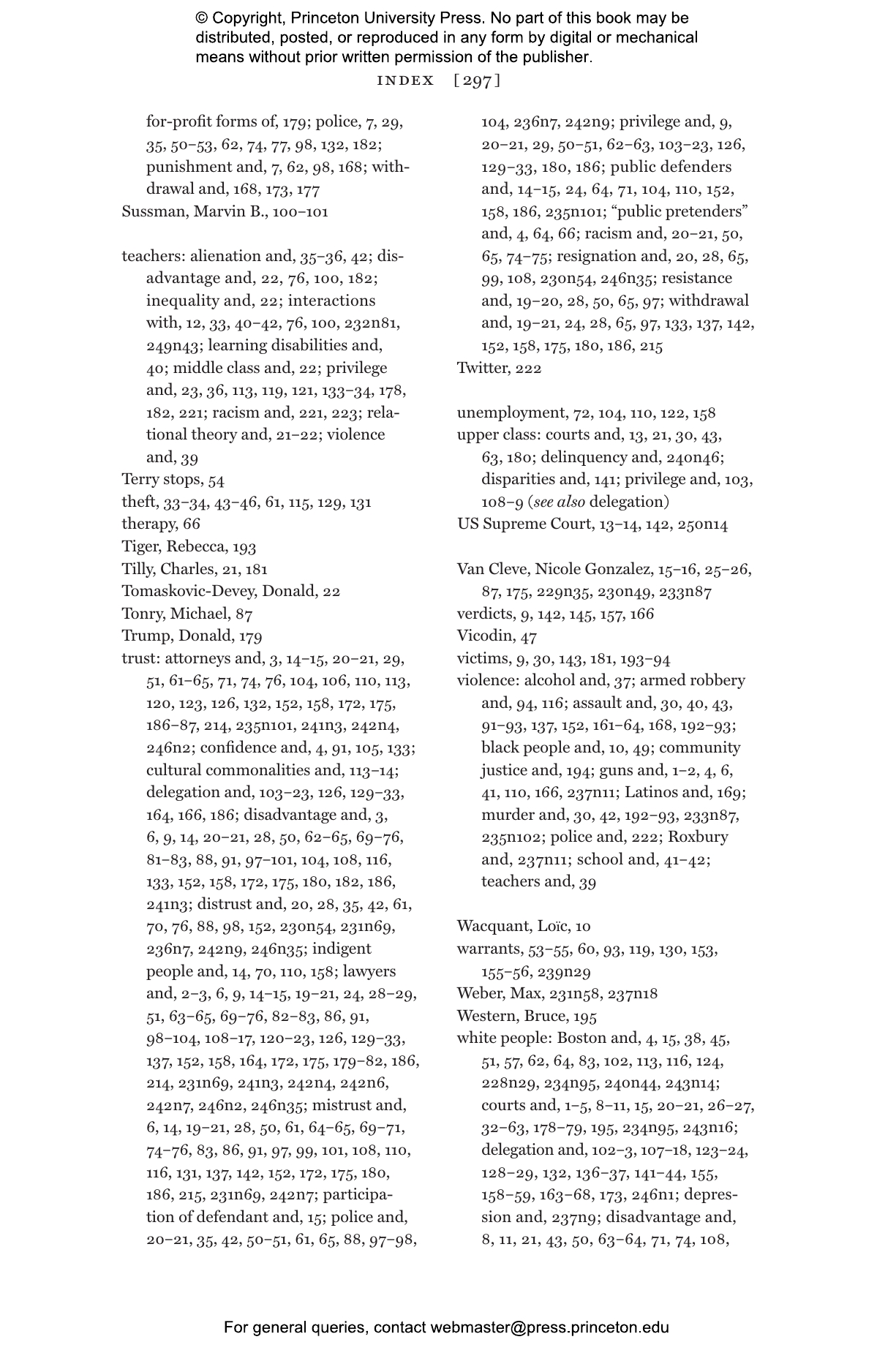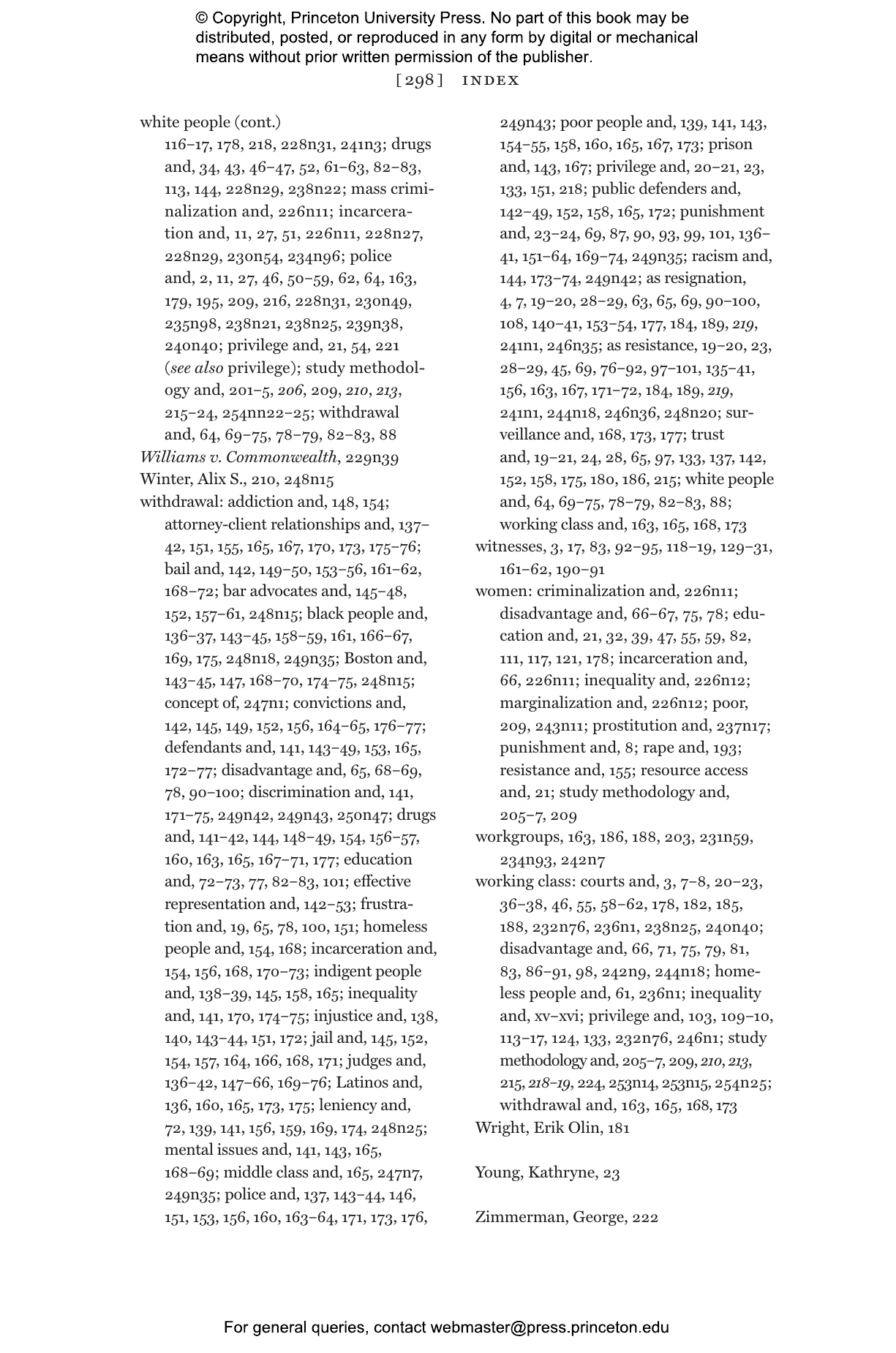The number of Americans arrested, brought to court, and incarcerated has skyrocketed in recent decades. Criminal defendants come from all races and economic walks of life, but they experience punishment in vastly different ways. Privilege and Punishment examines how racial and class inequalities are embedded in the attorney-client relationship, providing a devastating portrait of inequality and injustice within and beyond the criminal courts.
Matthew Clair conducted extensive fieldwork in the Boston court system, attending criminal hearings and interviewing defendants, lawyers, judges, police officers, and probation officers. In this eye-opening book, he uncovers how privilege and inequality play out in criminal court interactions. When disadvantaged defendants try to learn their legal rights and advocate for themselves, lawyers and judges often silence, coerce, and punish them. Privileged defendants, who are more likely to trust their defense attorneys, delegate authority to their lawyers, defer to judges, and are rewarded for their compliance. Clair shows how attempts to exercise legal rights often backfire on the poor and on working-class people of color, and how effective legal representation alone is no guarantee of justice.
Superbly written and powerfully argued, Privilege and Punishment draws needed attention to the injustices that are perpetuated by the attorney-client relationship in today’s criminal courts, and describes the reforms needed to correct them.
Awards and Recognition
- Winner of the Outstanding Book Award, Inequality, Poverty, and Mobility Section of the American Sociological Association
- Winner of the Edwin H. Sutherland Book Award, Law and Society Division of the Society for the Study of Social Problems
- Matthew Clair, Co-Winner of the Michael Harrington Award, Poverty, Class, and Inequality Division of the Society for the Study of Social Problems
- Winner of the Media for a Just Society Book Award, Evident Change
- Winner of a Gold Medal in Current Events, Independent Publisher Book Awards
- Co-Winner of the Max Weber Book Award, Organizations, Occupations, and Work Section of the American Sociological Association
- Co-Winner of the Oliver Cromwell Cox Book Award, Section on Racial and Ethnic Minorities of the American Sociological Association
- Co-Winner of the Albert J. Reiss Distinguished Scholarly Publication Award, Crime, Law, and Deviance Section of the American Sociological Association
- Honorable Mention for the Distinguished Contribution to Scholarship Book Award, Race, Gender, and Class Section of the American Sociological Association
- Finalist for the C. Wright Mills Award, Society for the Study of Social Problems
- Winner of the Distinguished Scholarship Award, Pacific Sociological Association
"A careful study of what [Clair] argues is an overlooked cause of inequity in the criminal justice system: the unexpectedly combative relationship between defendants and their lawyers."—Harper's Magazine
"A well-researched, eye-opening study that will appeal to readers of criminal justice and sociology."—Library Journal
"Privilege and Punishment is worth reading to the end."—Science
"[Clair’s] study is important."—Christian Century
"Matthew Clair has written a timely and salient book that describes in intricate detail how the attorney-client relationship between lawyer and defendant reproduces race- and class-based disparities in a criminal court."—The Journal of Criminal Justice and Law
"I believe this book will be essential reading for aspiring lawyers or anyone who enjoys reading about courts. Matthew Clair is an exceptional writer and I believe Privilege and Punishment is a book that will never become obsolete."—Paige Kenningale, Ethnic and Racial Studies
"A nuanced analysis of the courts. . . . Privilege and Punishment has highlighted a new arena of inquiry and provides a solid foundation for subsequent research to build upon. This book will surely inspire a great deal of scholarship in the years to come."—Veronica L. Horowitz, American Journal of Sociology
"Well-written, deeply researched, and with pivotal findings for understanding race and class inequality."—Francisco Vieyra, Sociology of Race and Ethnicity
"An invaluable contribution to our understanding of America's criminal legal system. Clair combines compelling observations, robust interview data, and deft prose to illuminate an aspect of the courtroom that, until now, has not gotten the attention it deserves. Privilege and Punishment helps all of us better understand the current system so that we can collectively imagine a new one."—Clint Smith, New York Times bestselling author of How the Word Is Passed
"Privilege and Punishment forces us to confront how criminal courts and their agents—judges, prosecutors, and lawyers alike—reproduce social inequalities and how ordinary people resist. An important lesson on the need for radical transformation not only in courtrooms but also in the broader society."—Dorothy Roberts, author of Killing the Black Body
"It is difficult for advantaged people in the United States to understand what it's like to be ignored, silenced, mistreated, and failed by the people and institutions that are supposed to look out for all of us. Privilege and Punishment provides a powerful, beautifully written account of how the criminal court system treats some individuals like clients and others like criminals. Matthew Clair's book is a must-read for anyone interested in reforming the criminal legal system."—Patrick Sharkey, author of Uneasy Peace: The Great Crime Decline, the Renewal of City Life, and the Next War on Violence
"Privilege and Punishment makes an important contribution to the scholarship on criminal courts and the law. Clair's work prioritizes the experience of defendants as they navigate a system that notoriously punishes—through process—along race and class lines."—Nicole Gonzalez Van Cleve, author of Crook County: Racism and Injustice in America’s Largest Criminal Court and The Waiting Room
"In this lively book, Matthew Clair compellingly demonstrates how some defendants gain advantages in the criminal justice system and others lose out. Privilege and Punishment is an original work that provides fresh insights into how class and race alter life chances. Highly recommended!"—Annette Lareau, author of Unequal Childhoods
"Engaging, original, and important. Clair masterfully conveys how the dynamics of defendant-attorney relations take shape in ways that have a material impact on the final outcome, and treats defendants with an immense amount of respect for their agency without losing sight of their marginalized position."—Mona Lynch, author of Hard Bargains: The Coercive Power of Drug Laws in Federal Court
